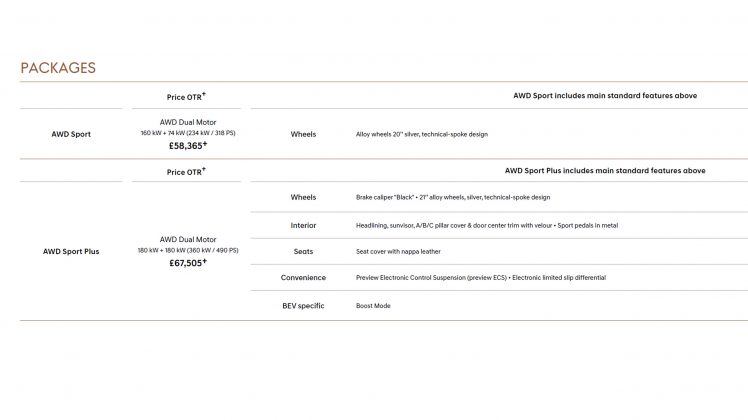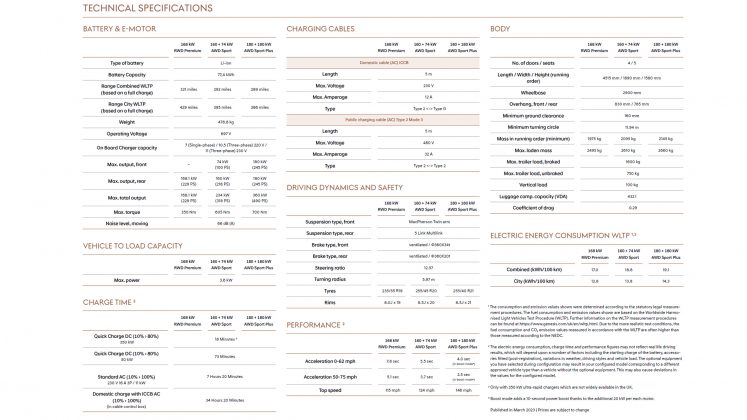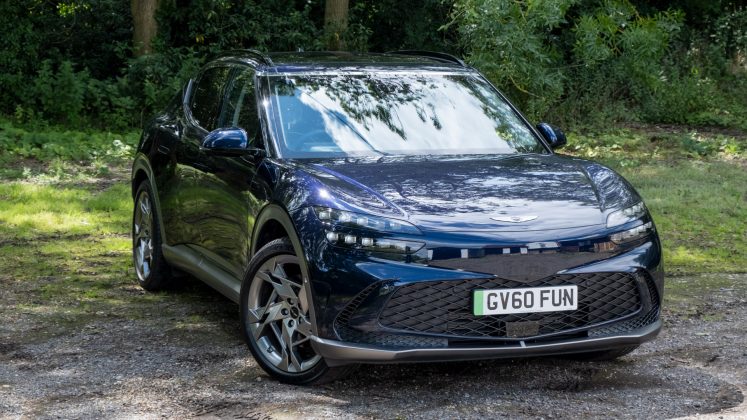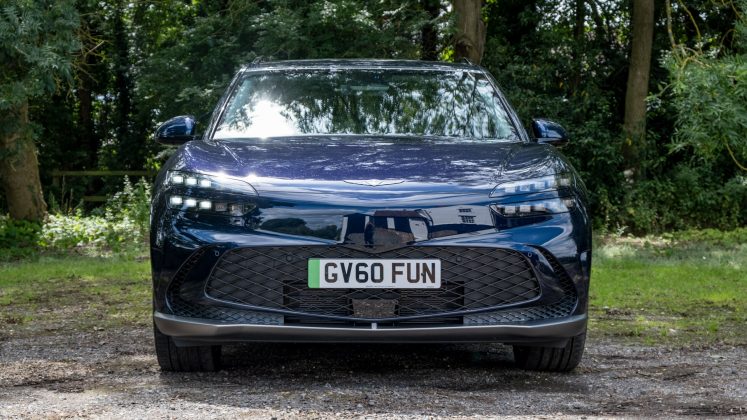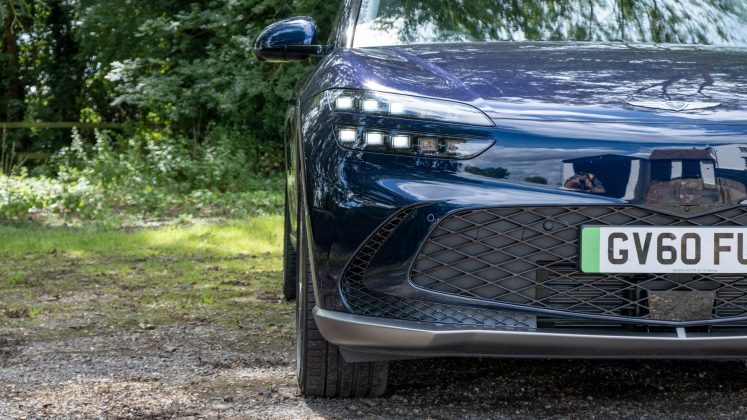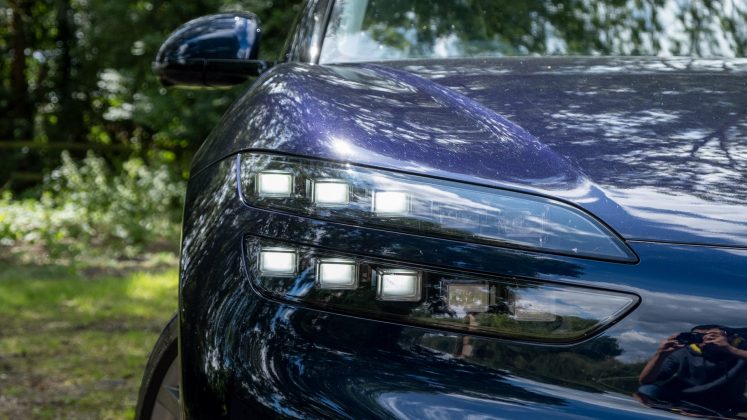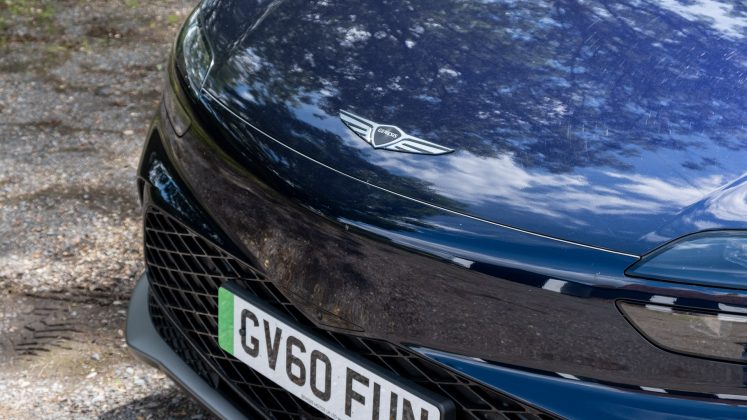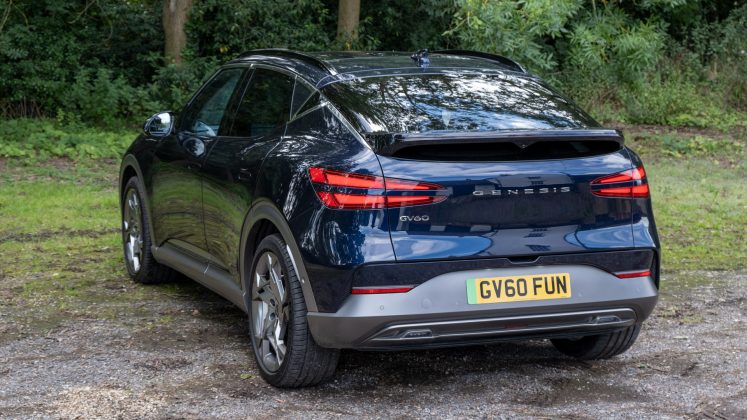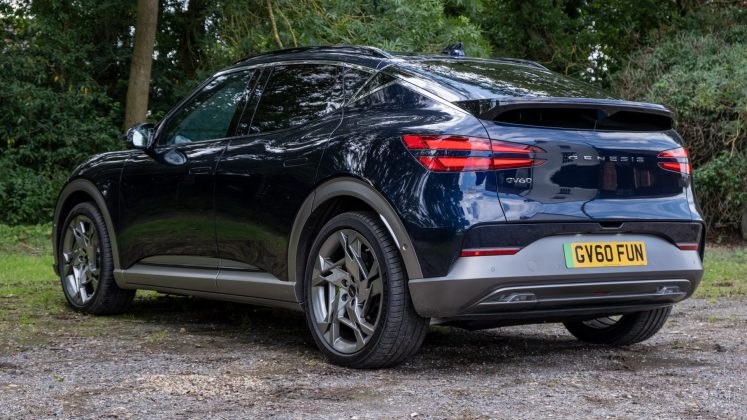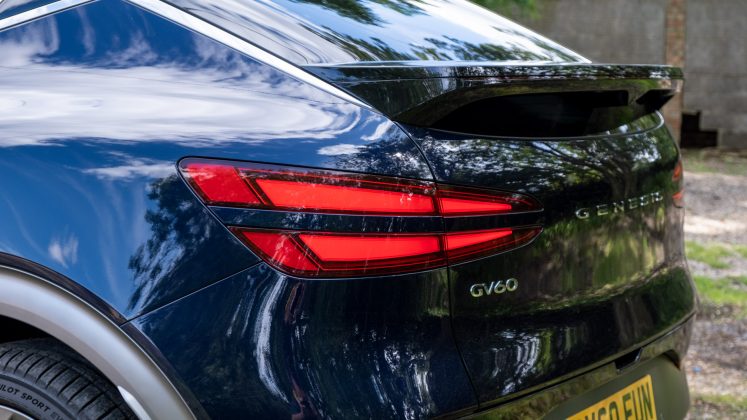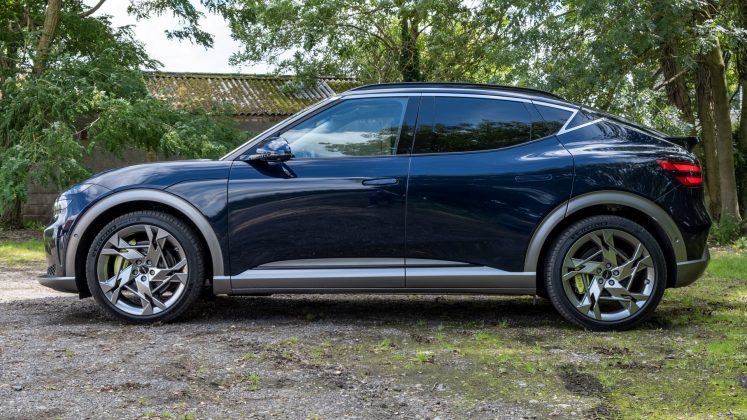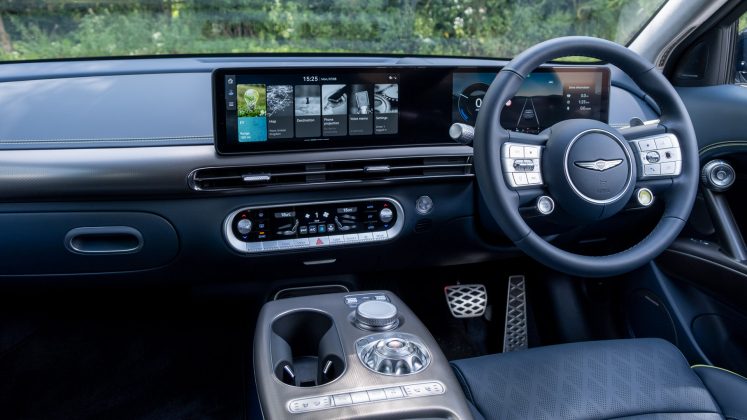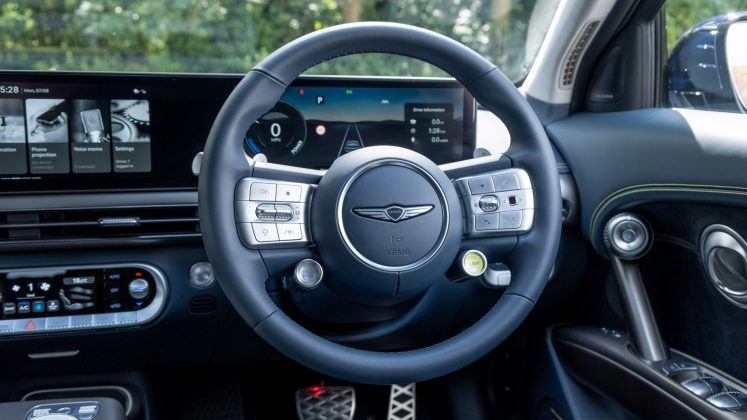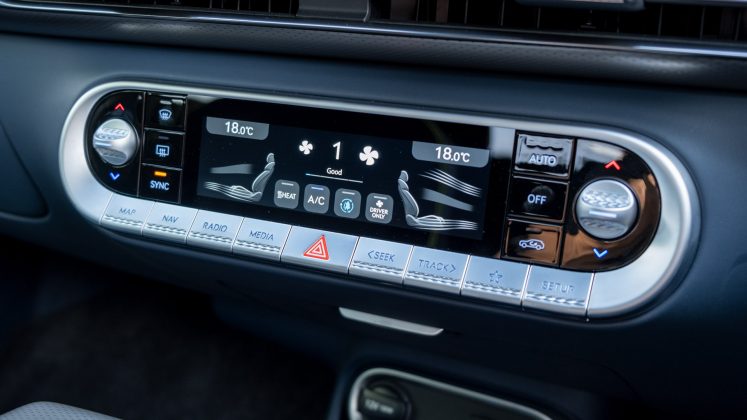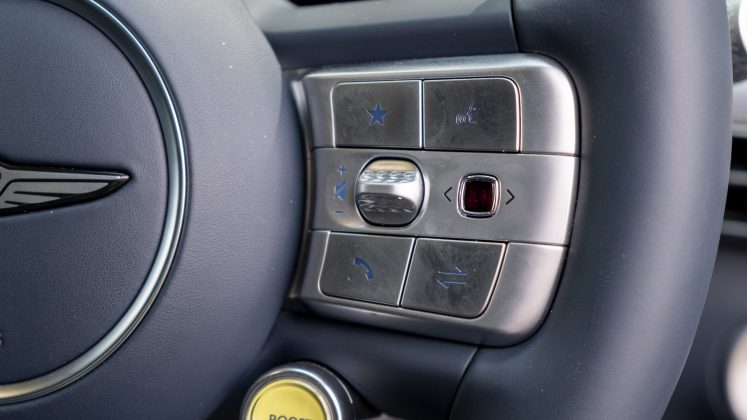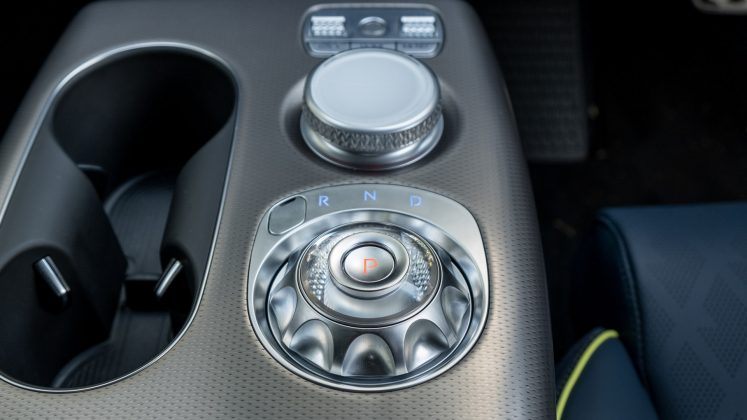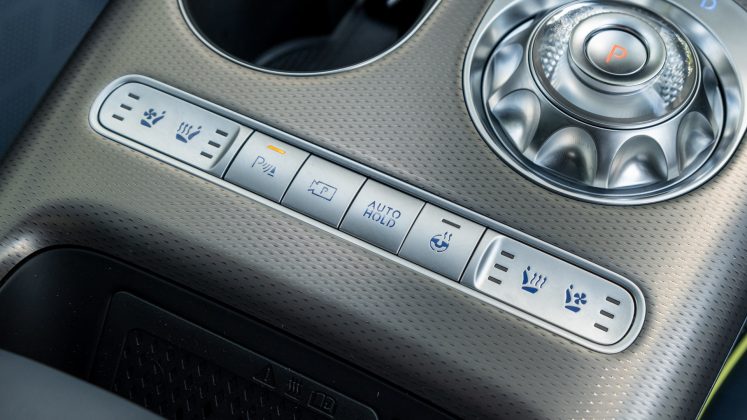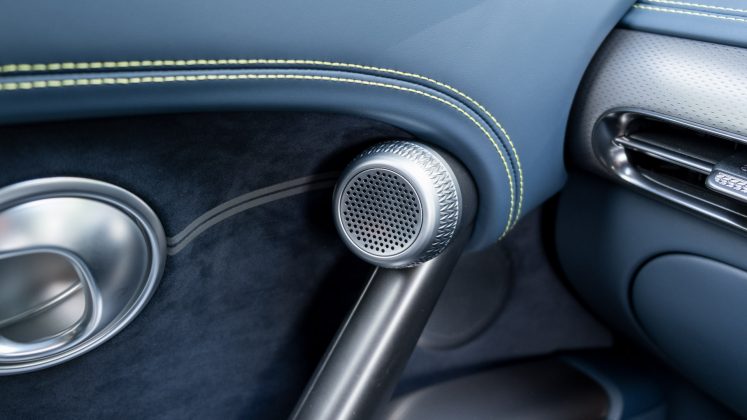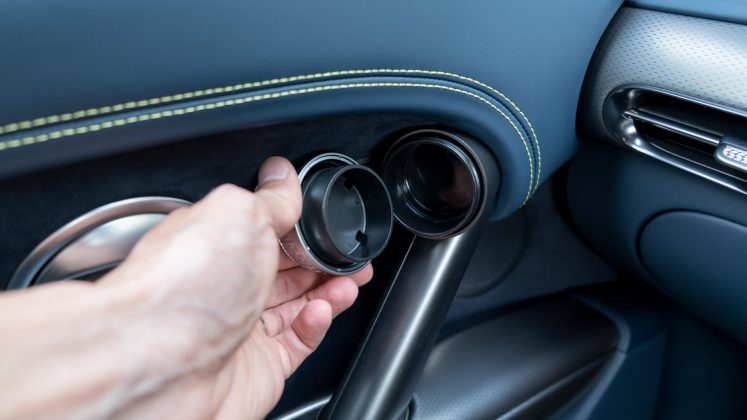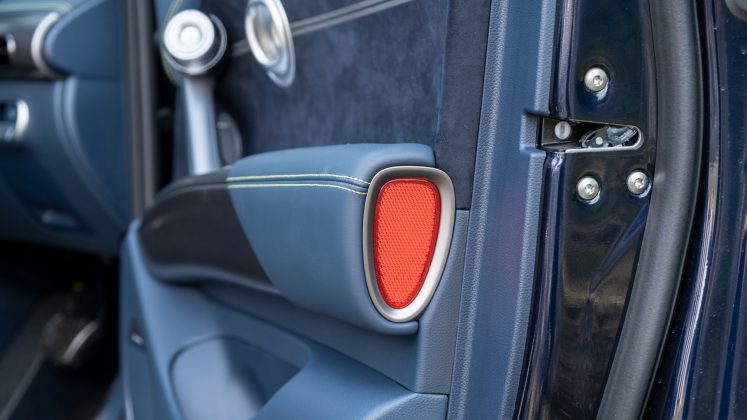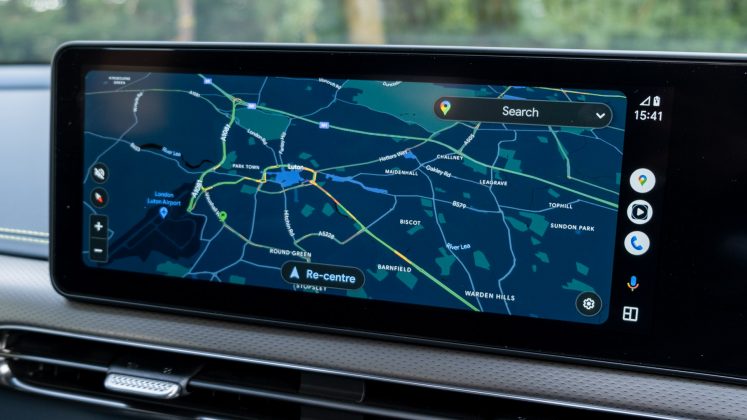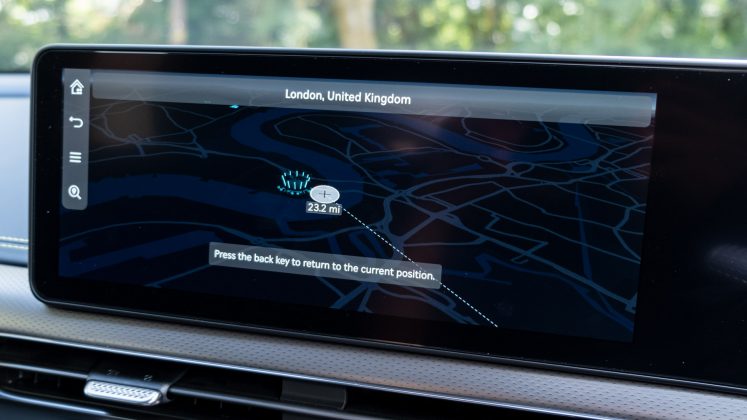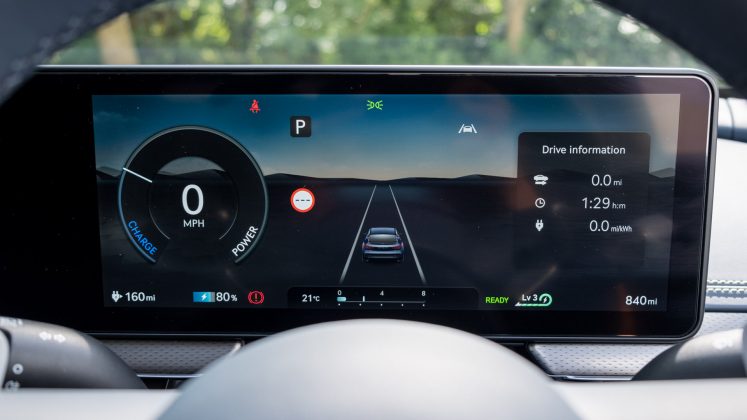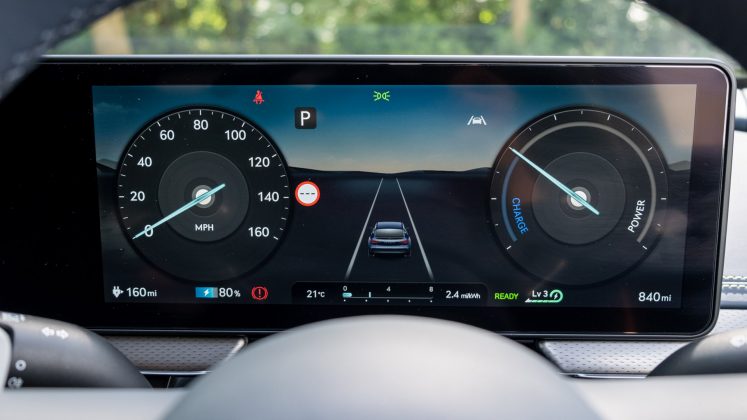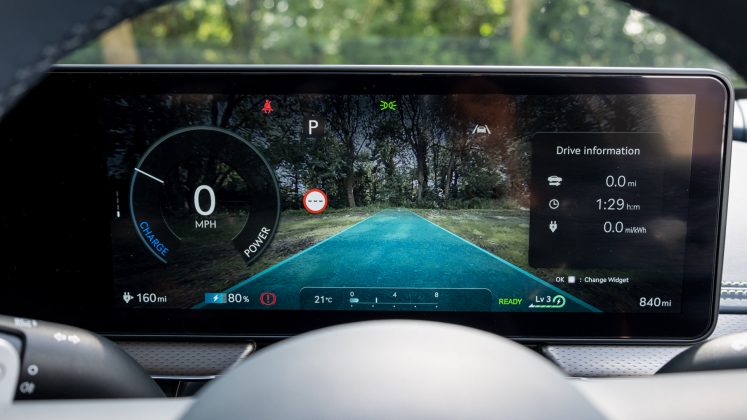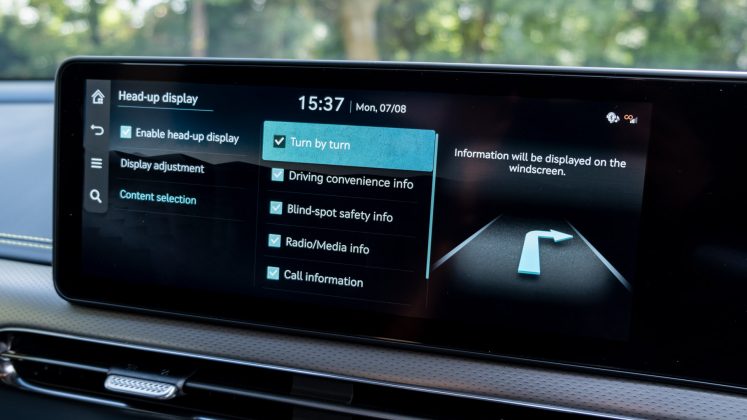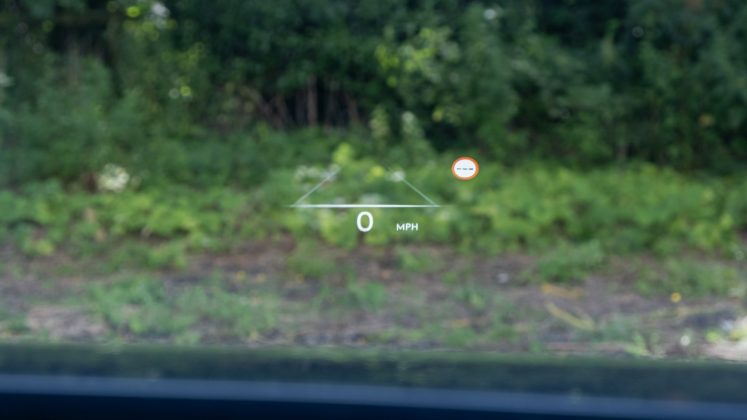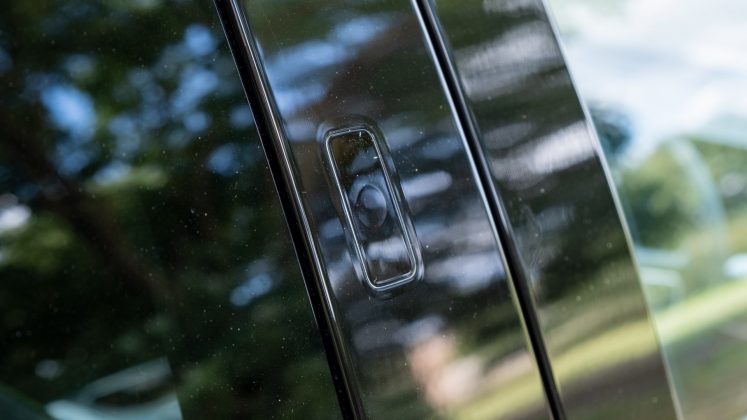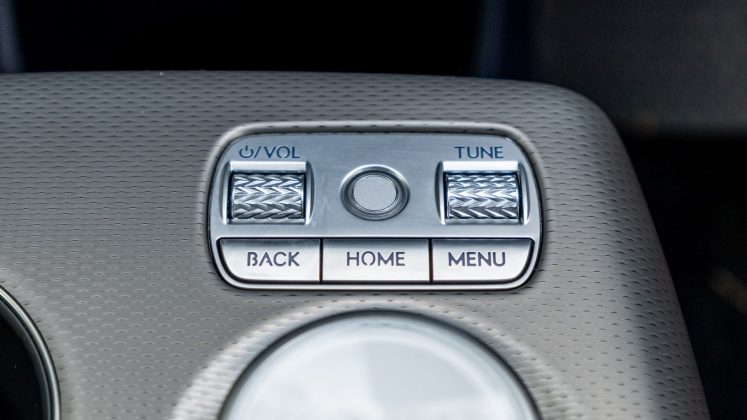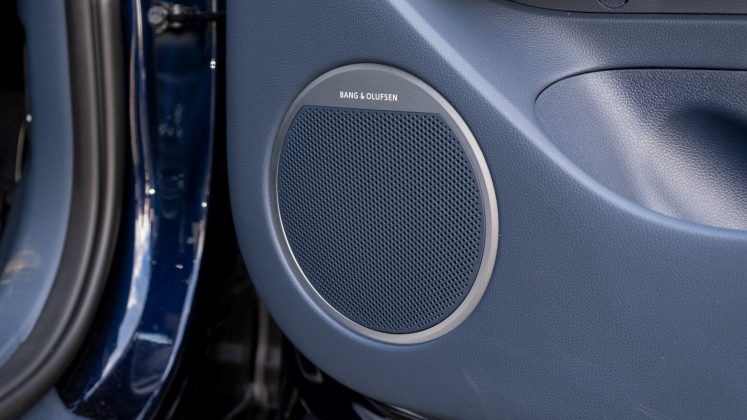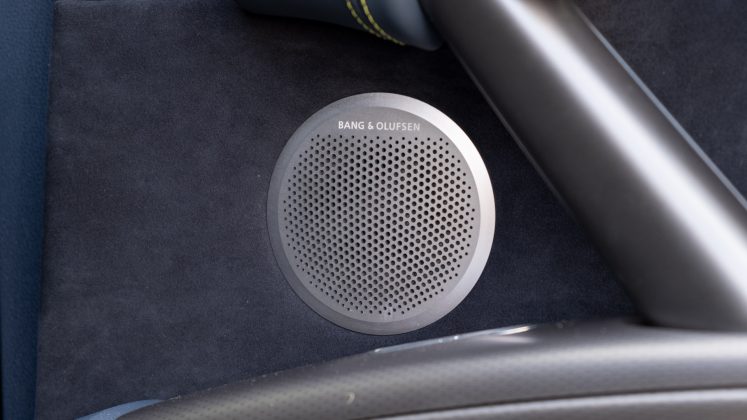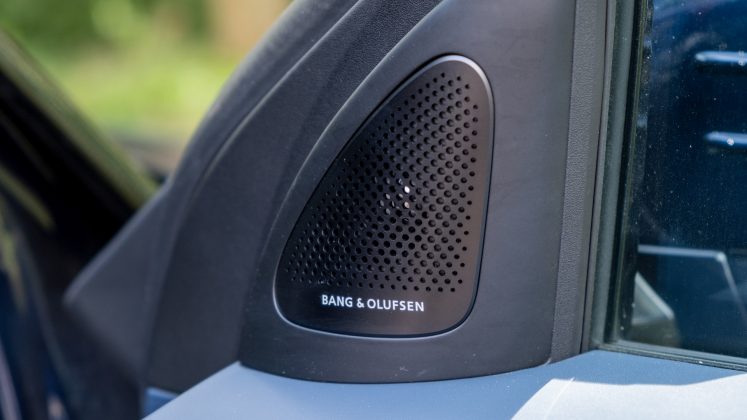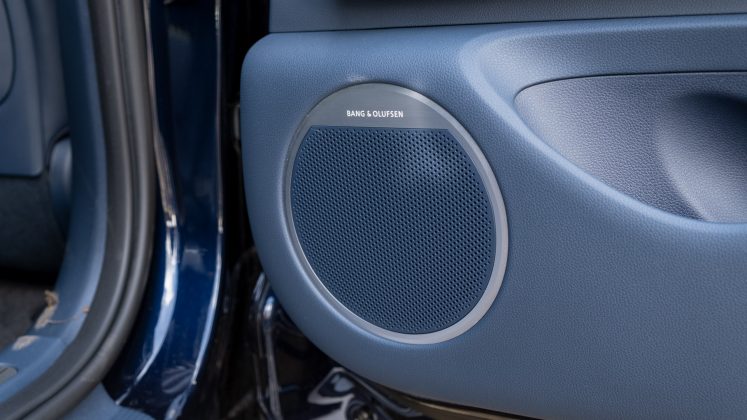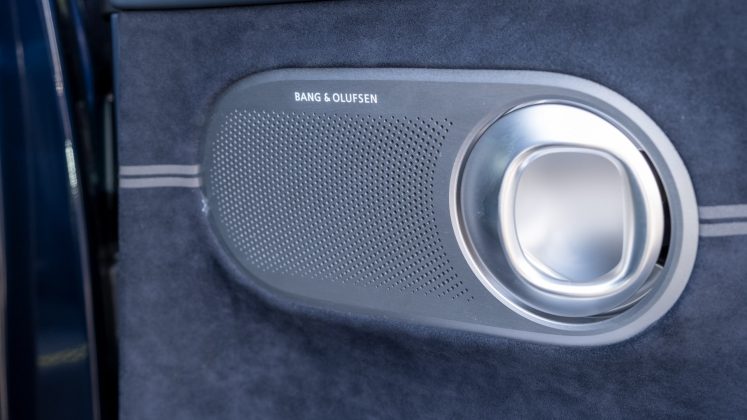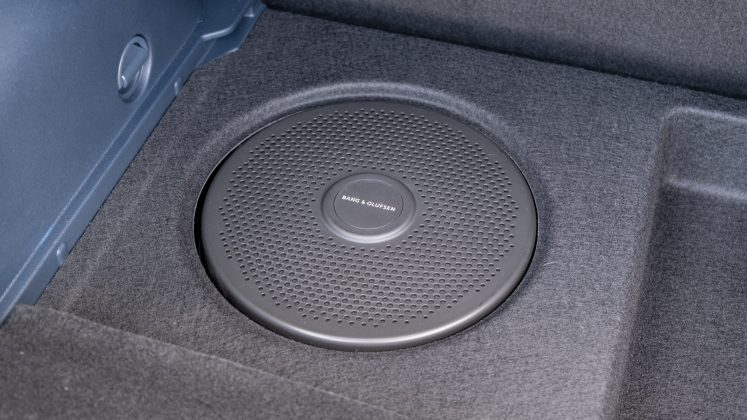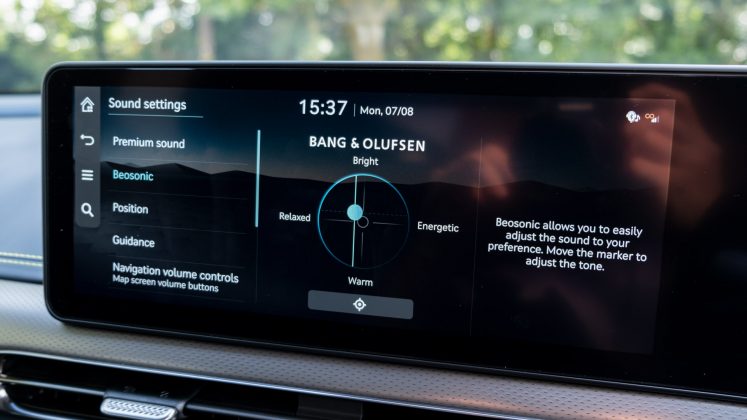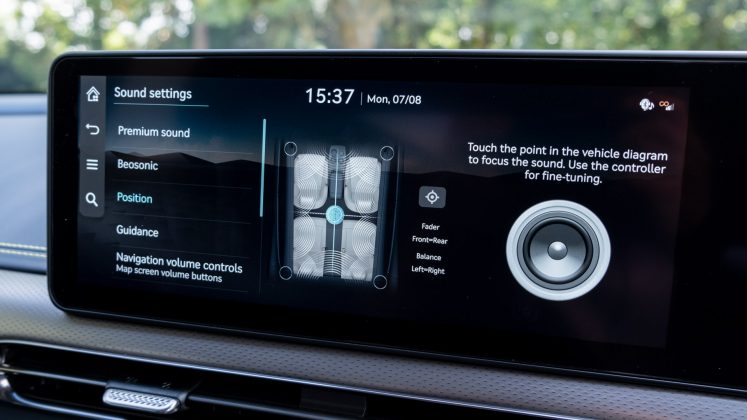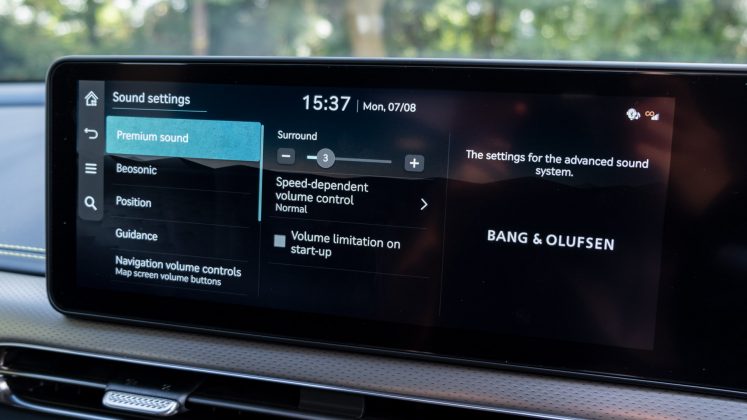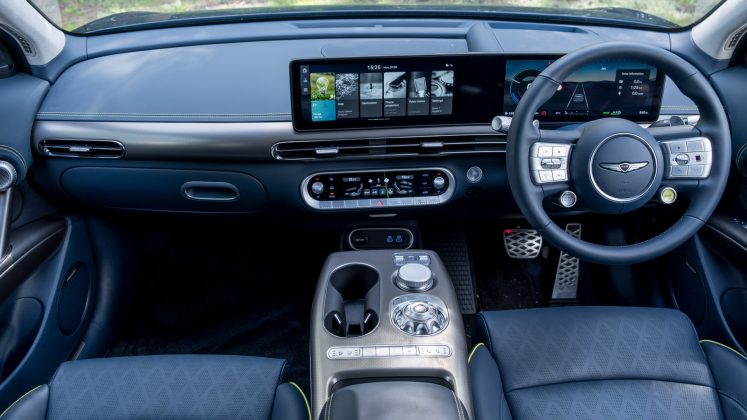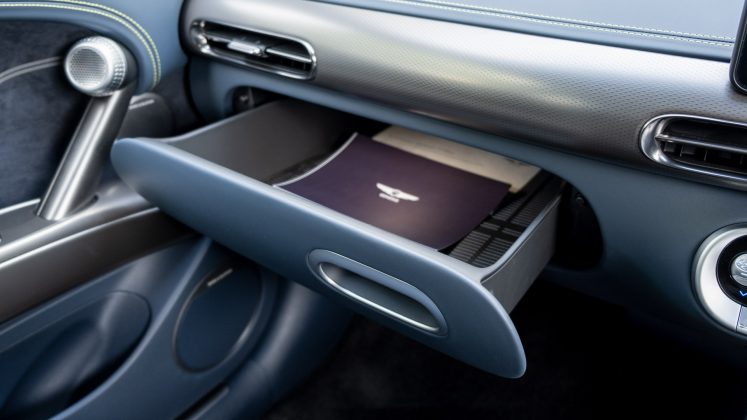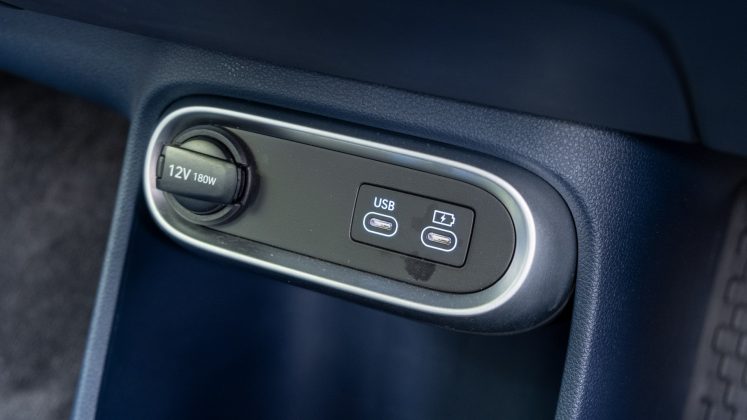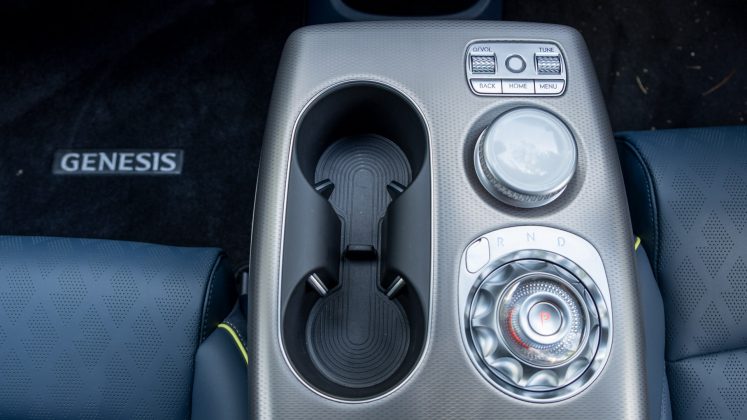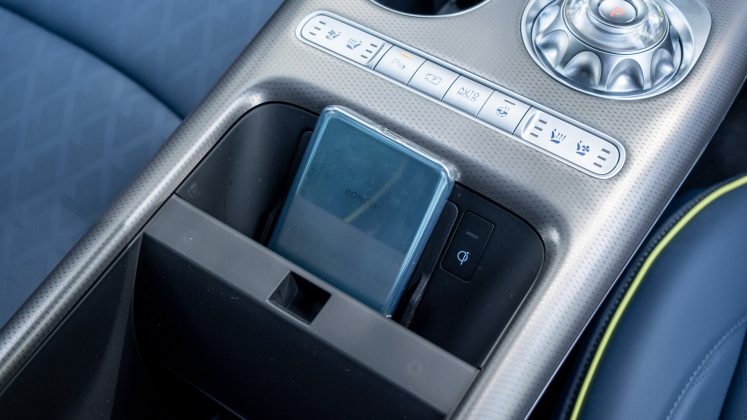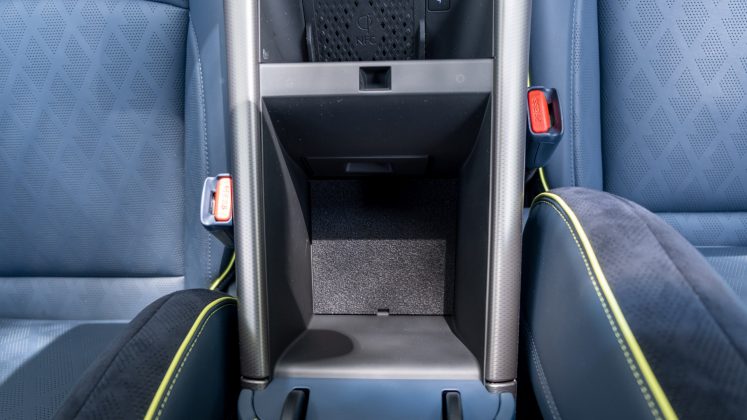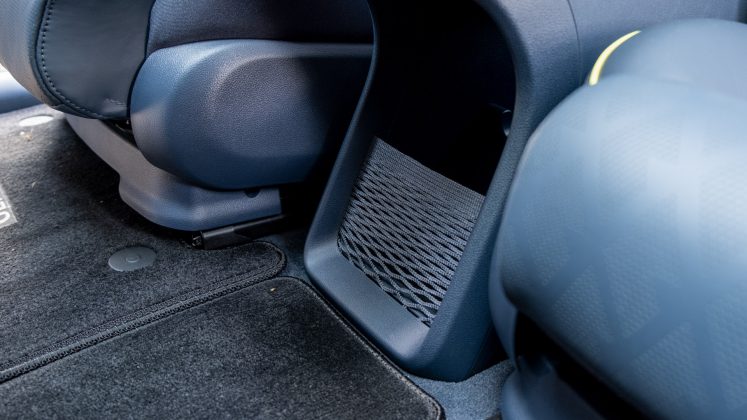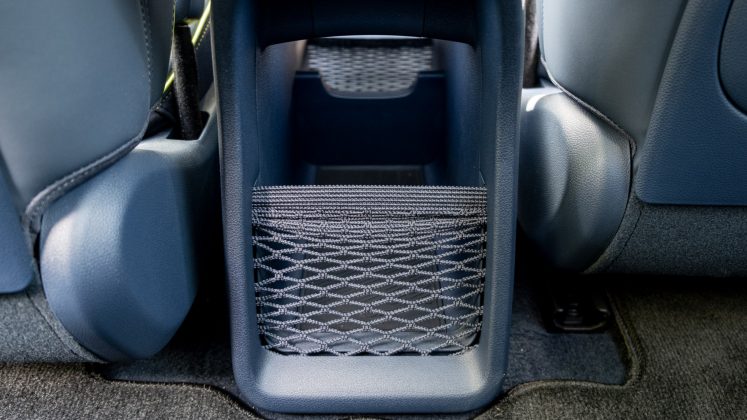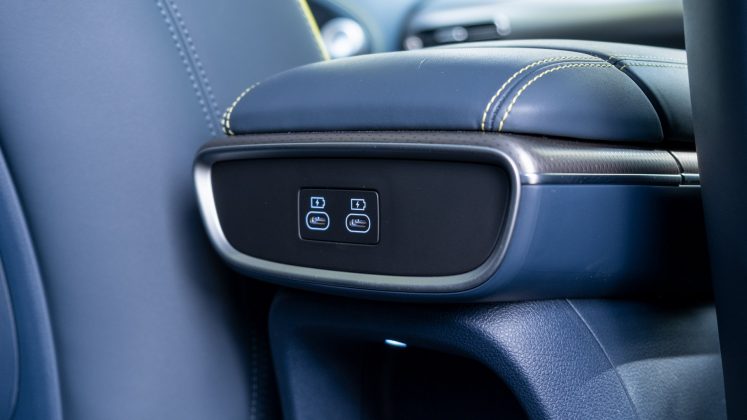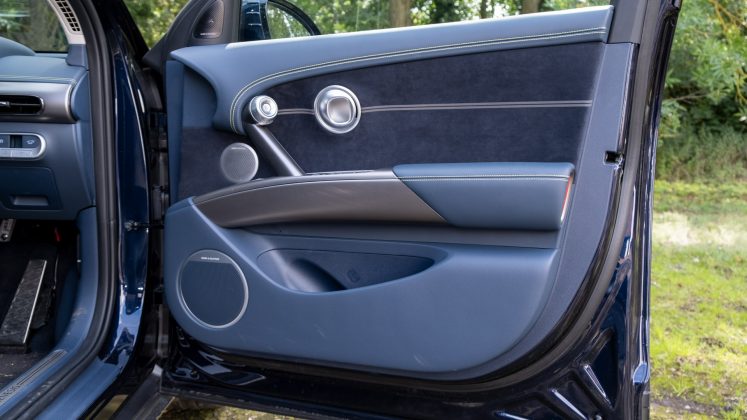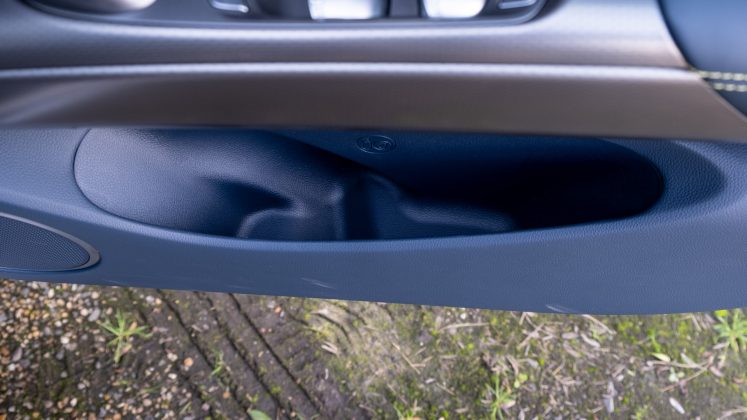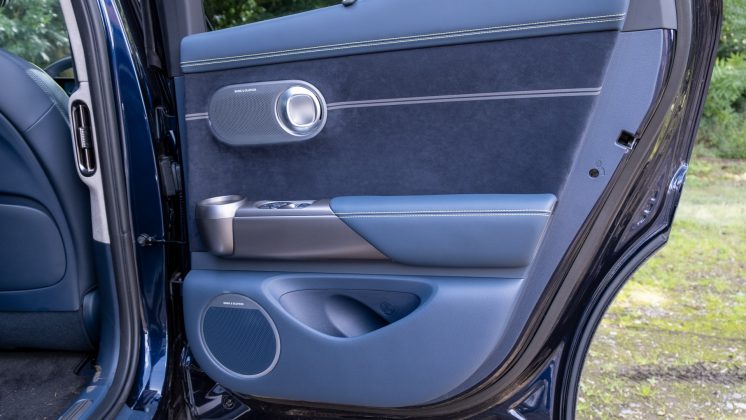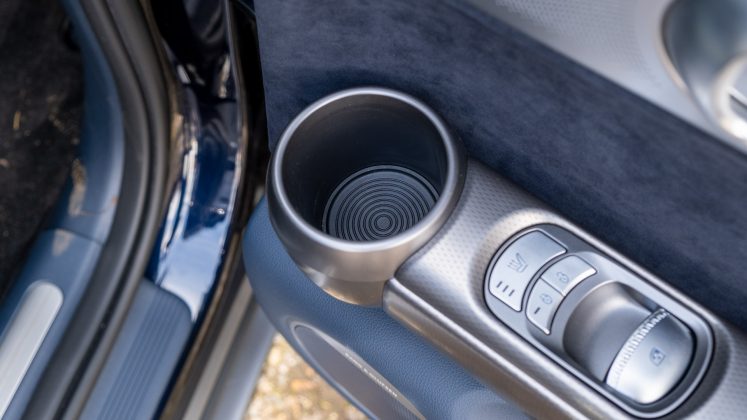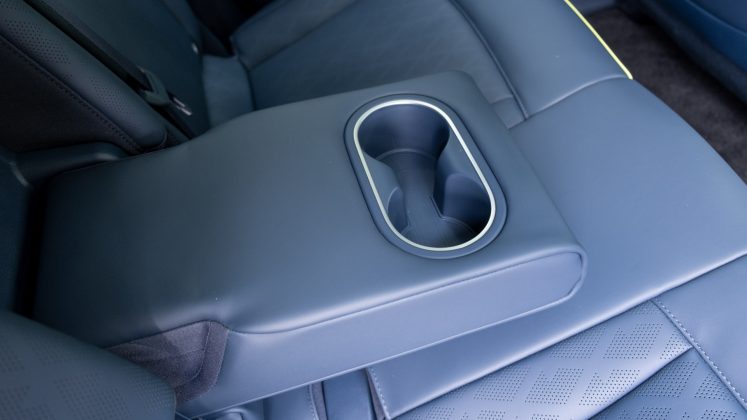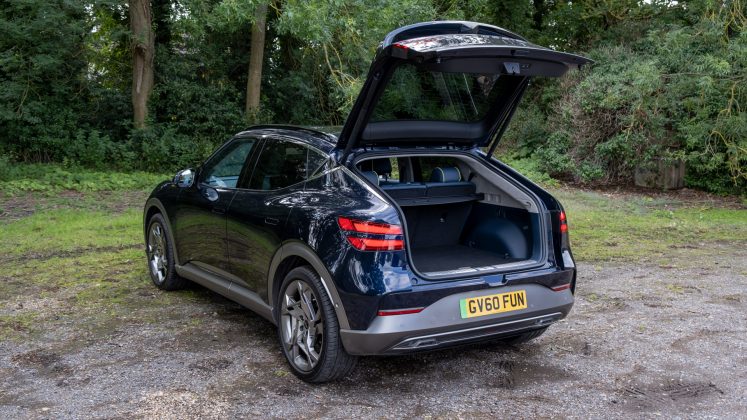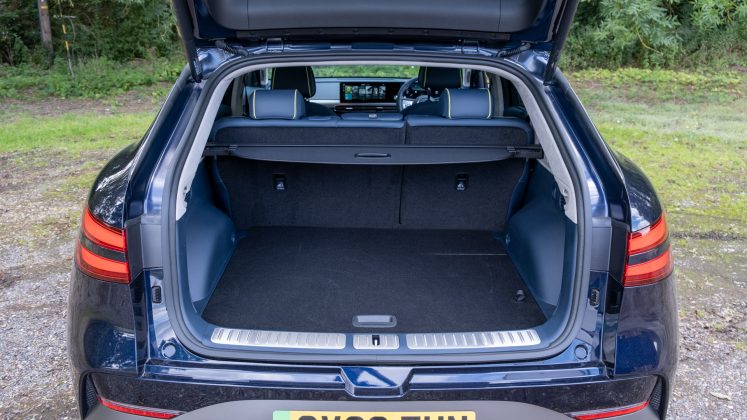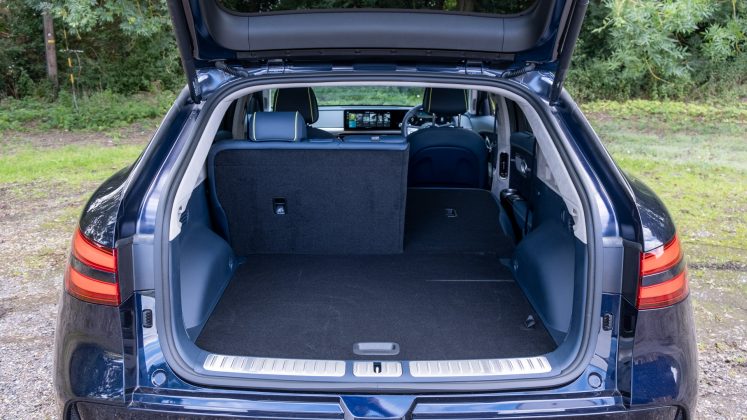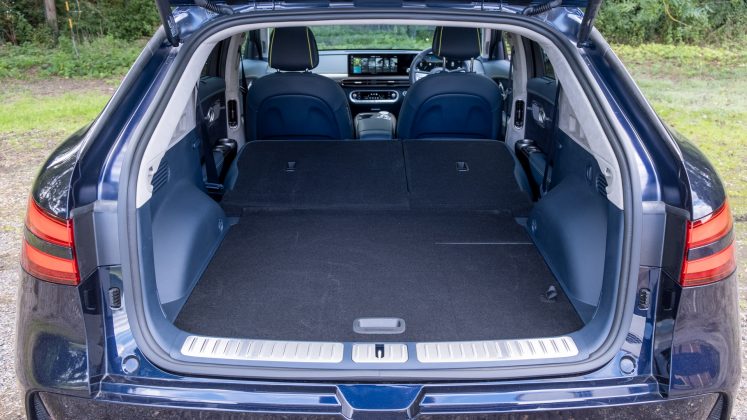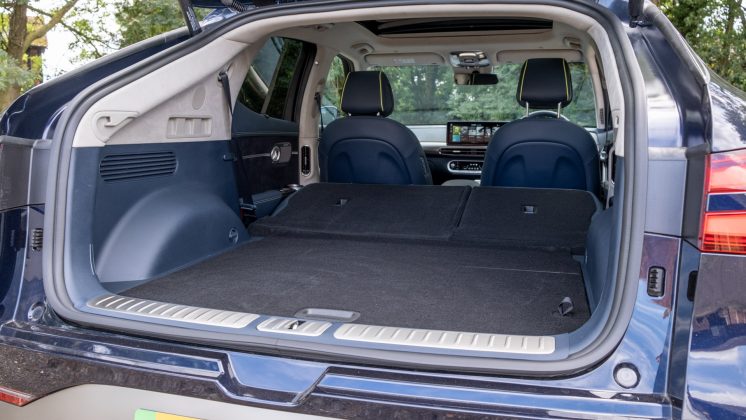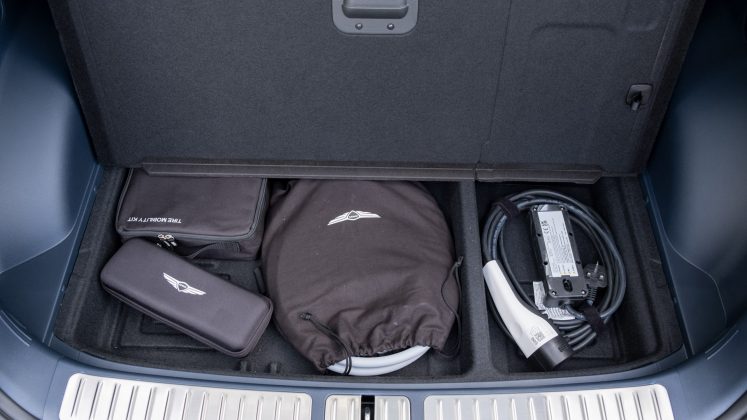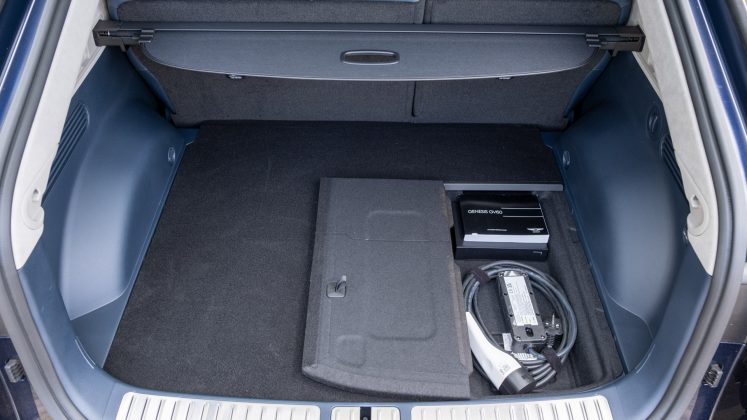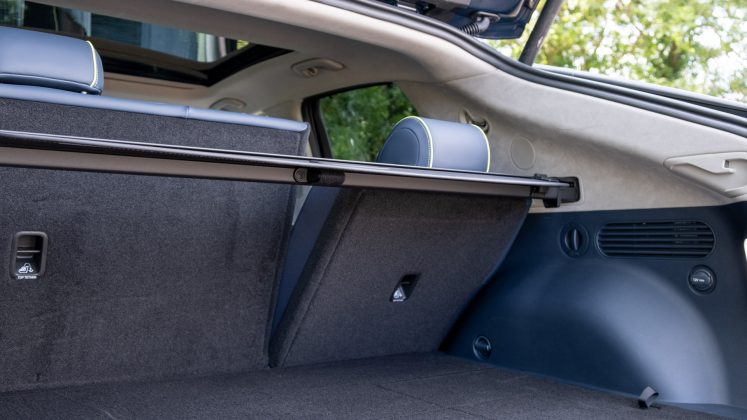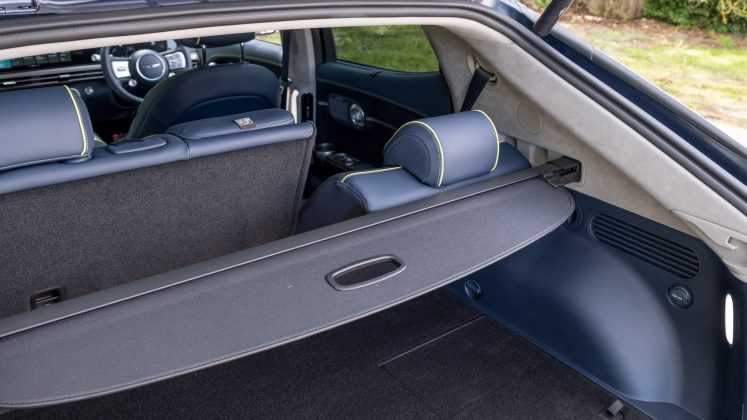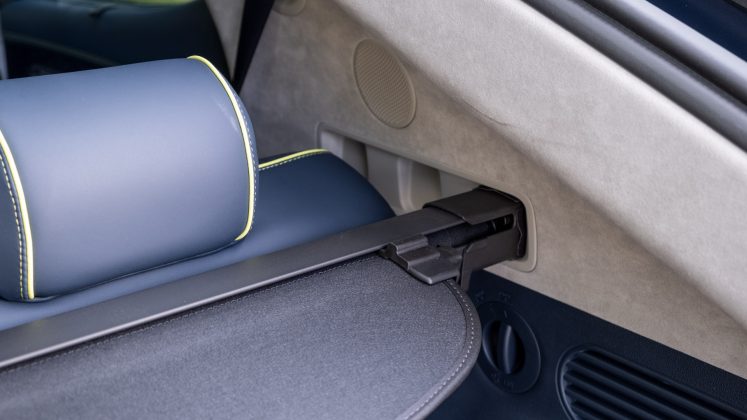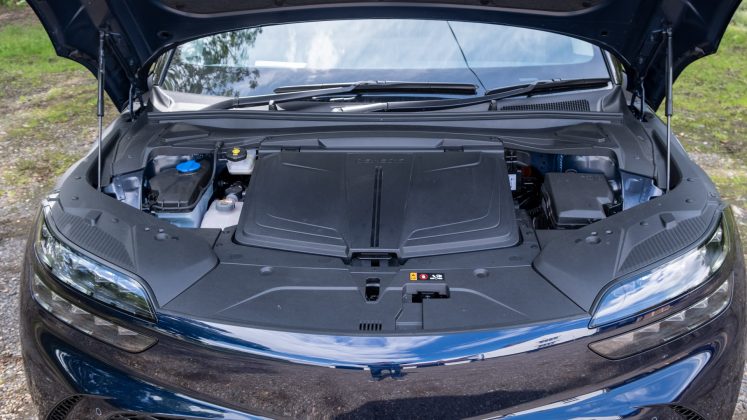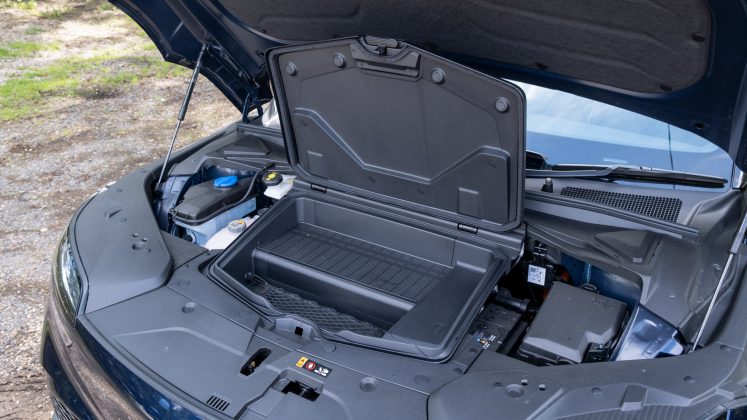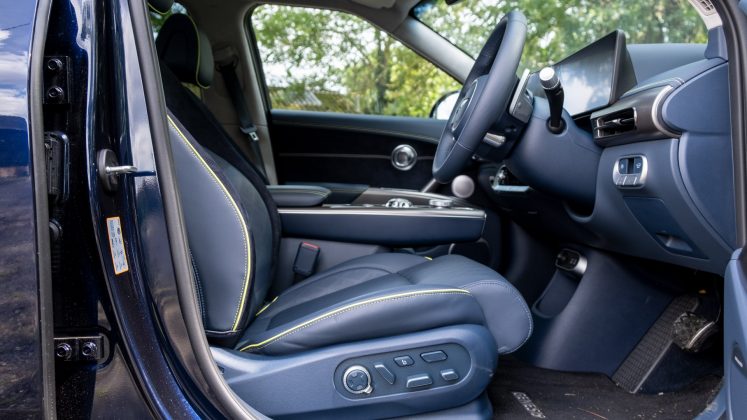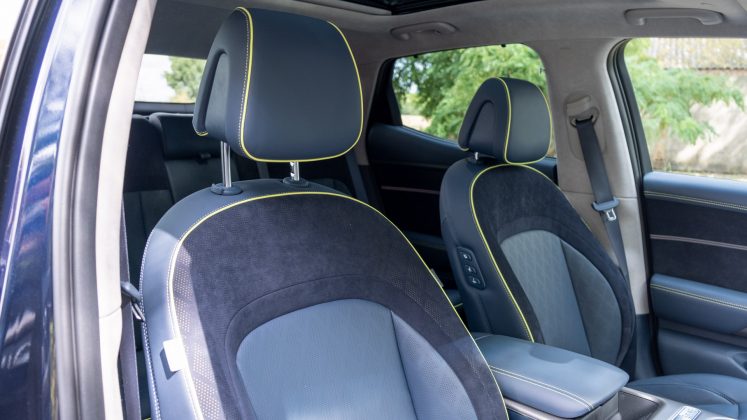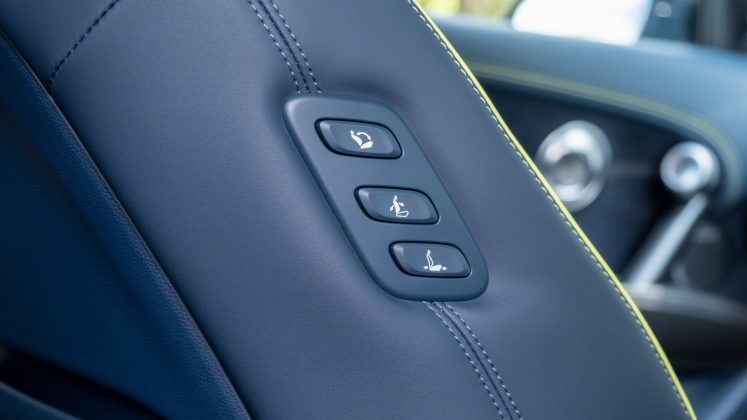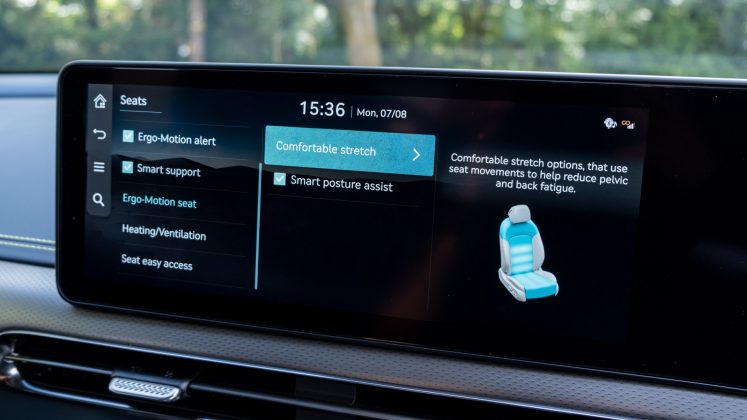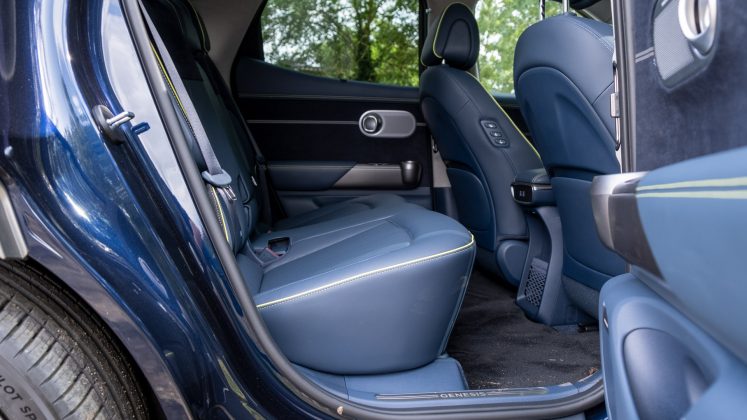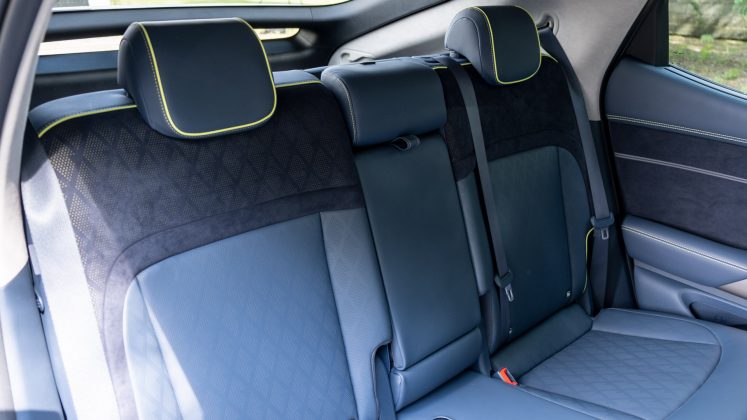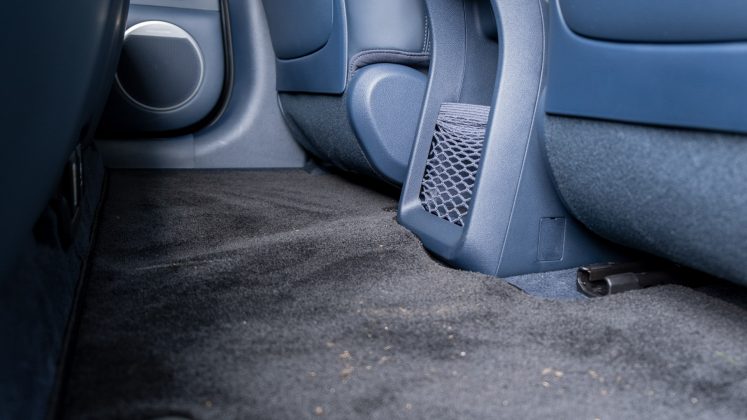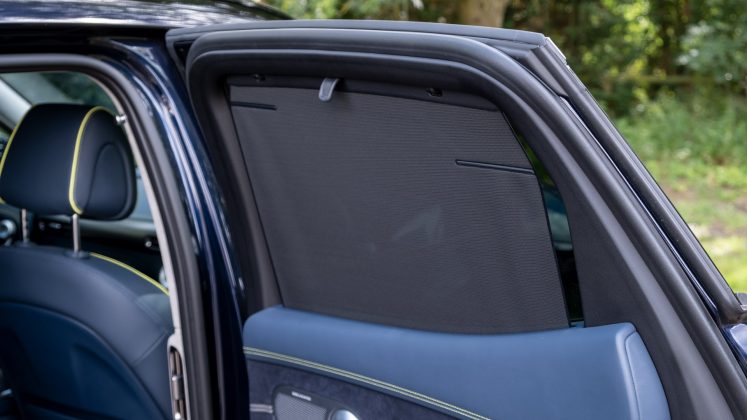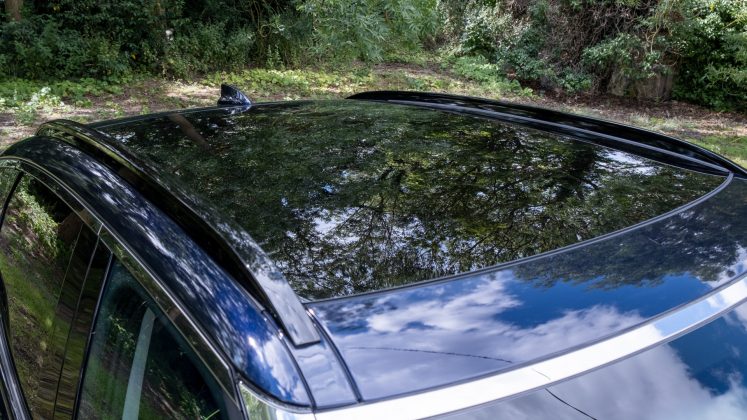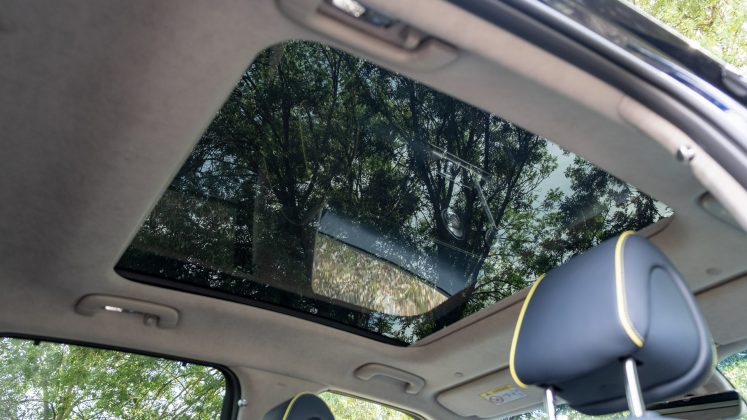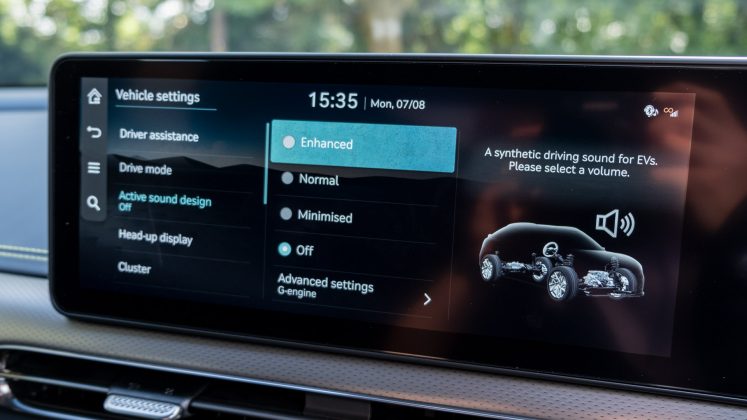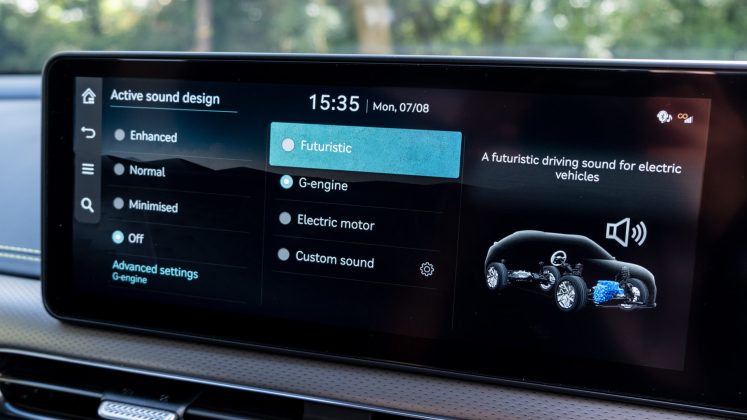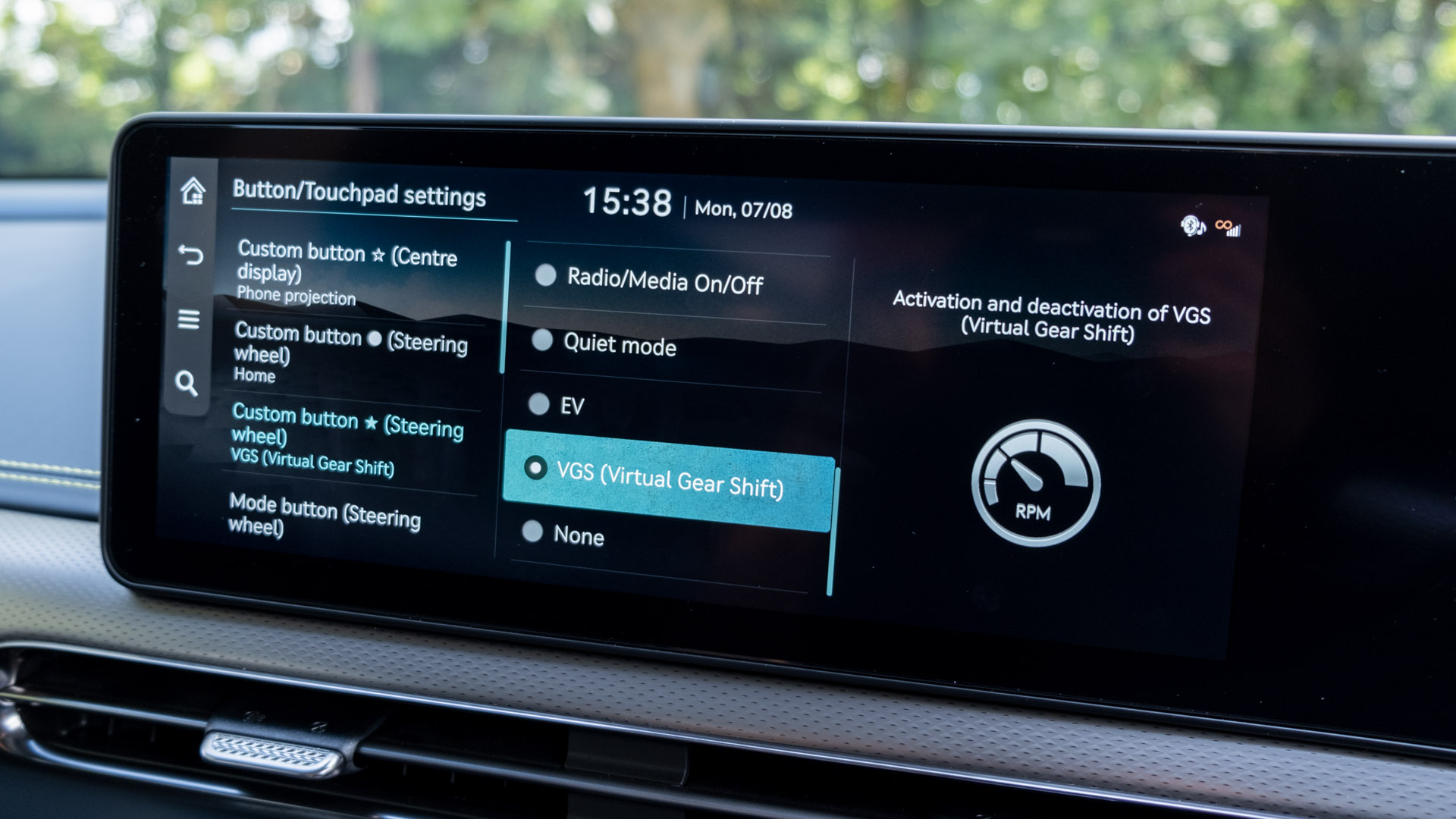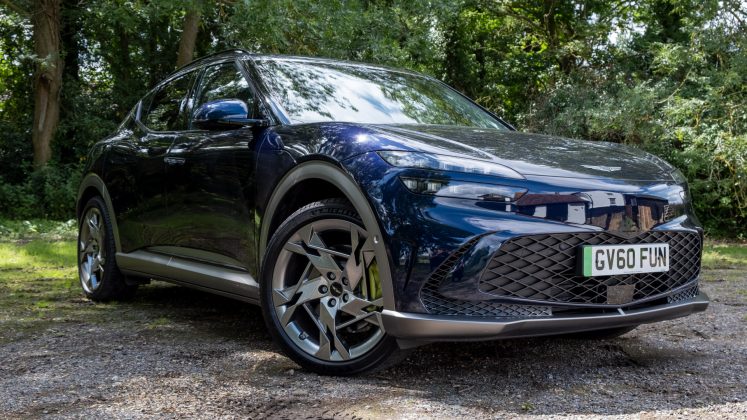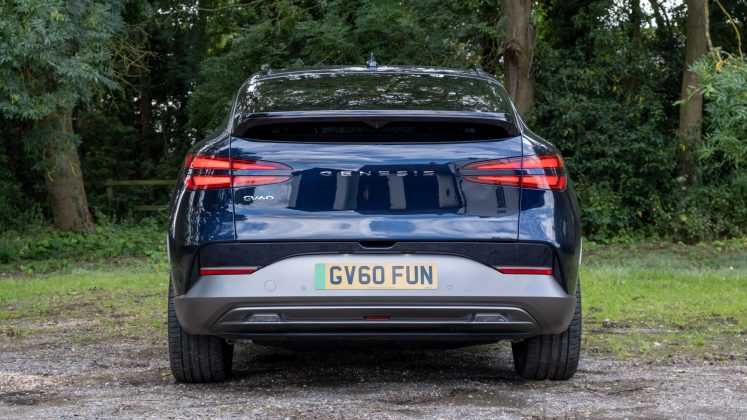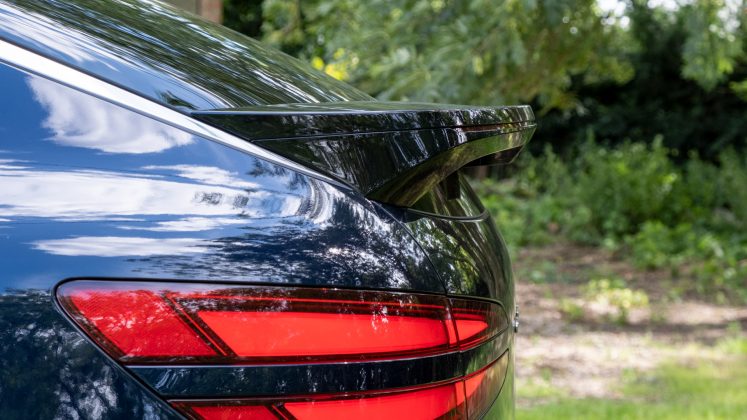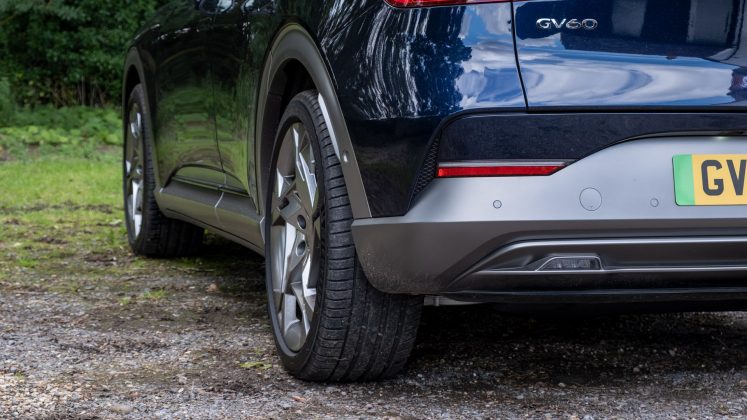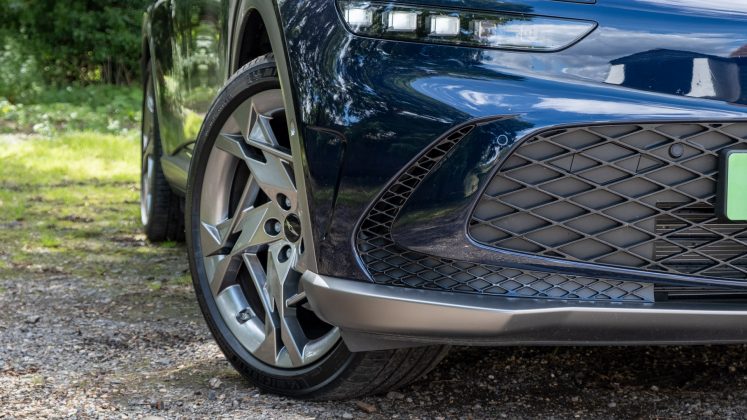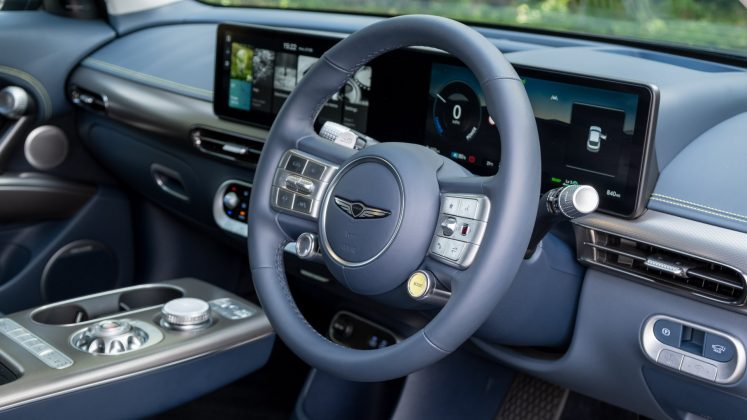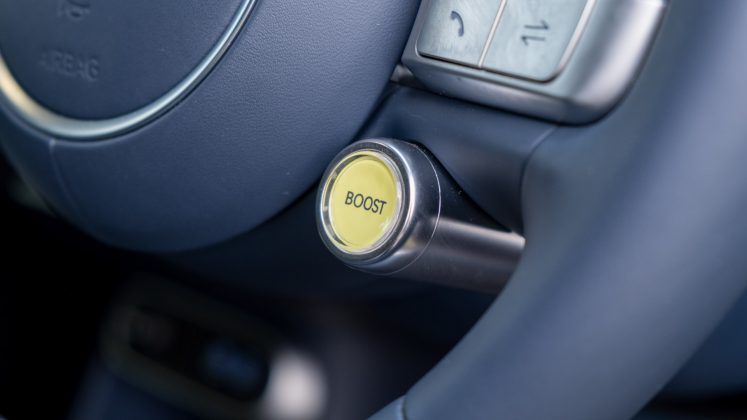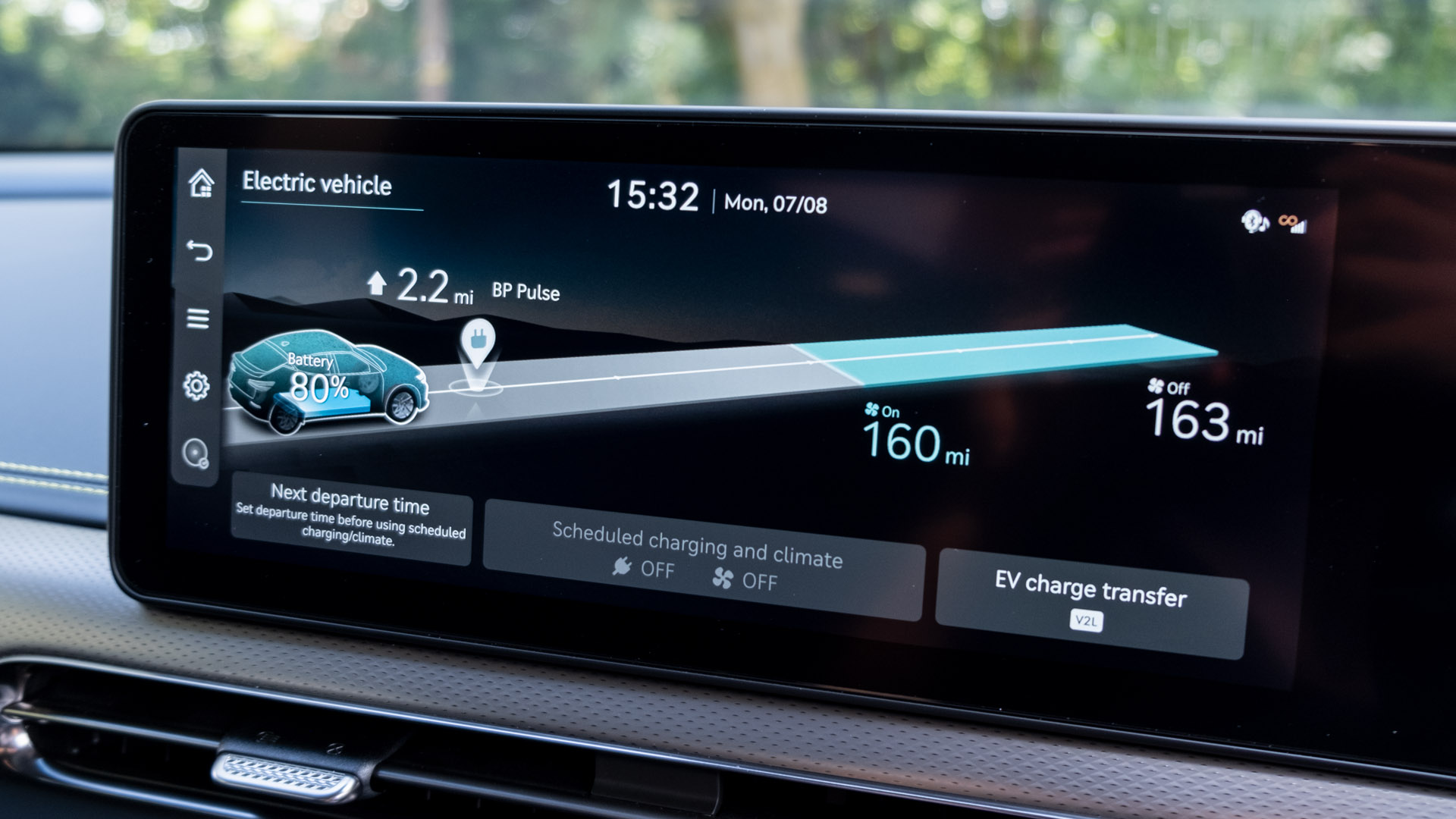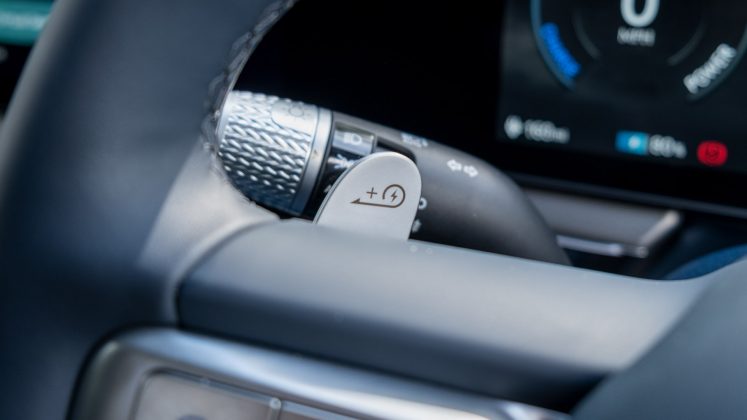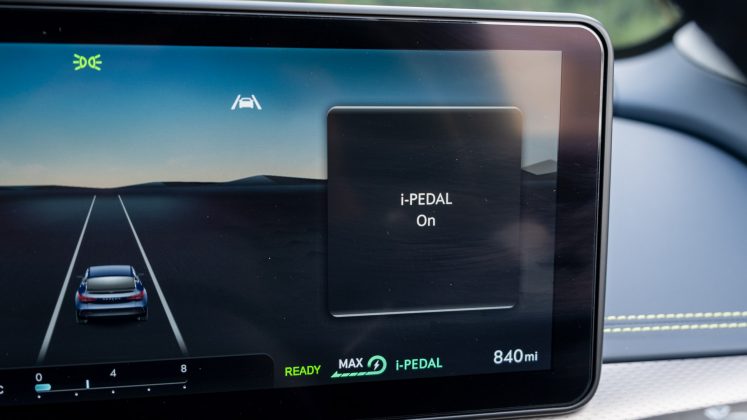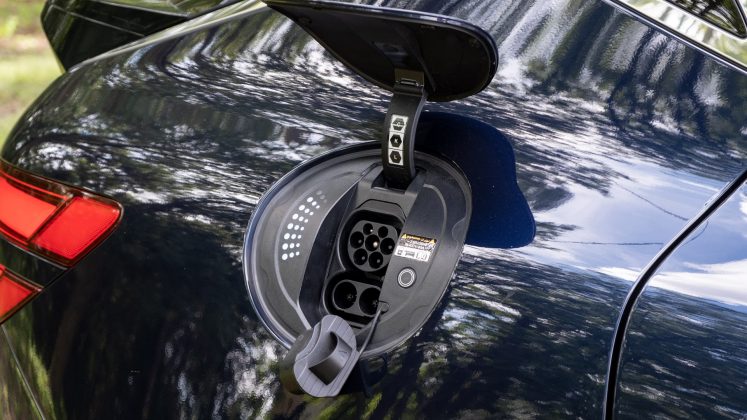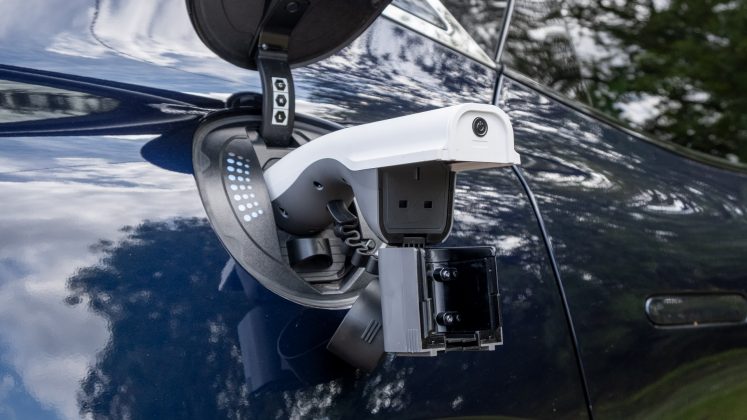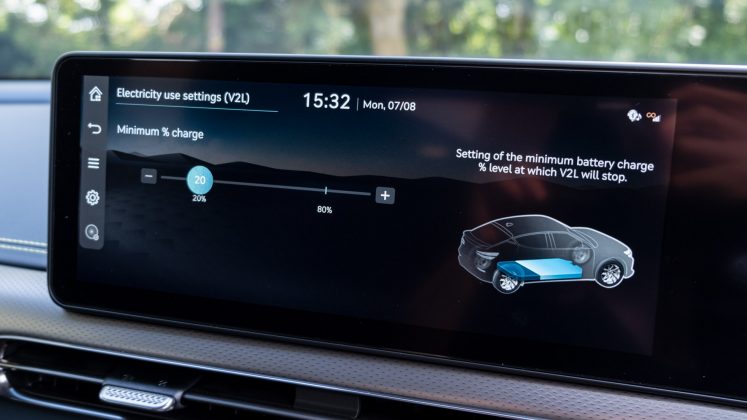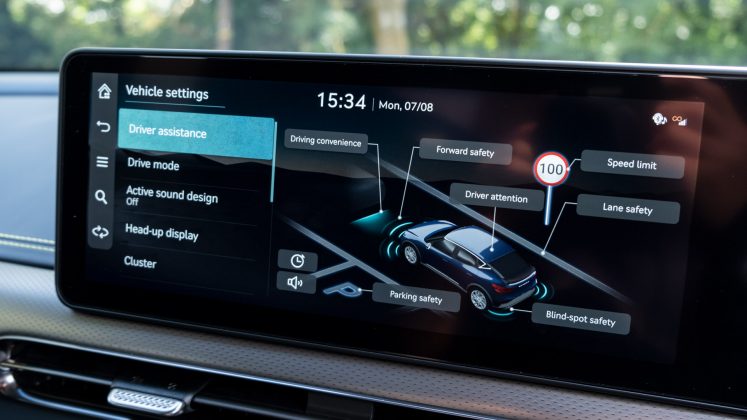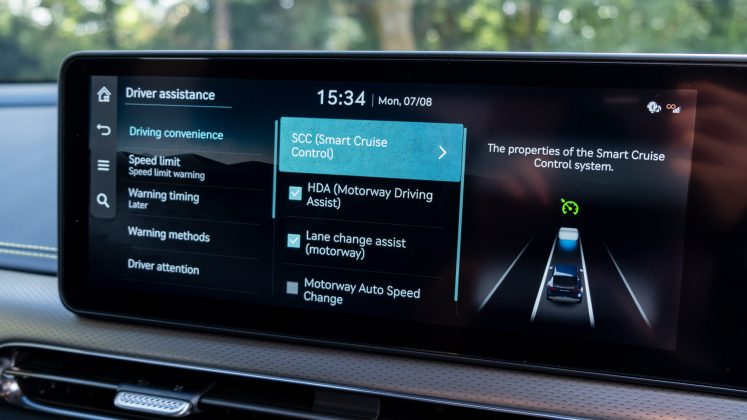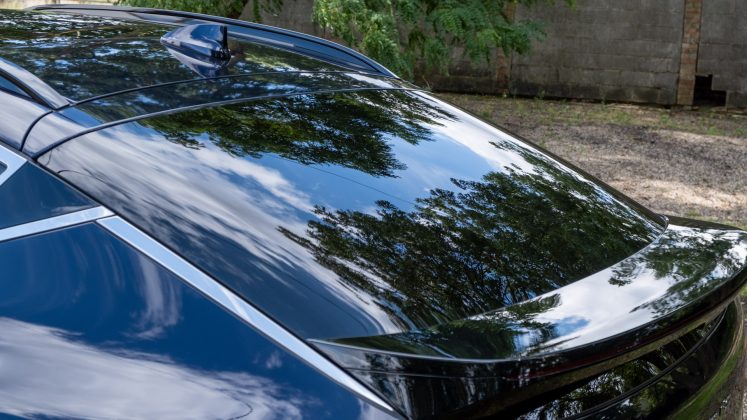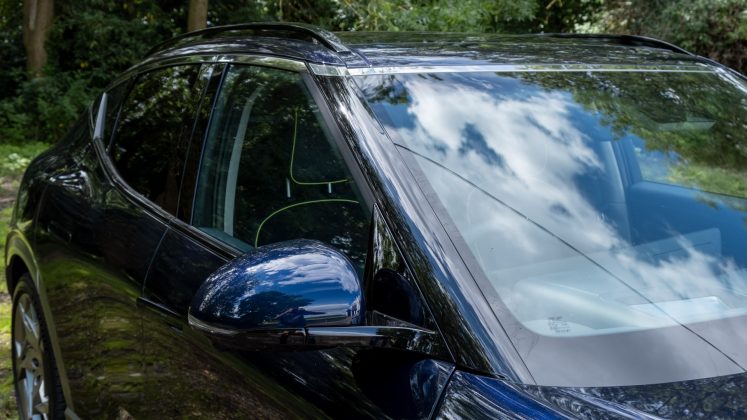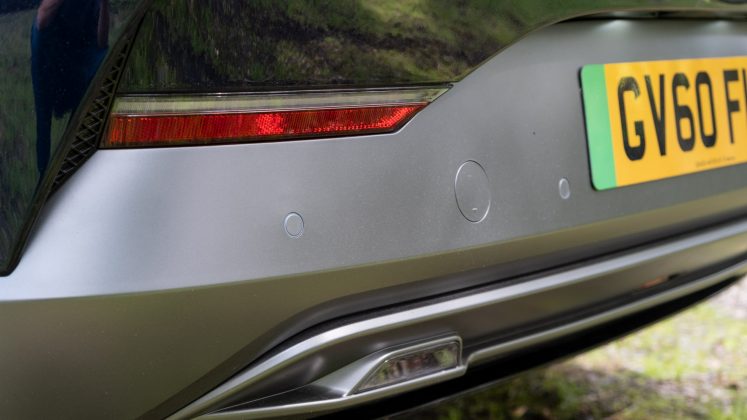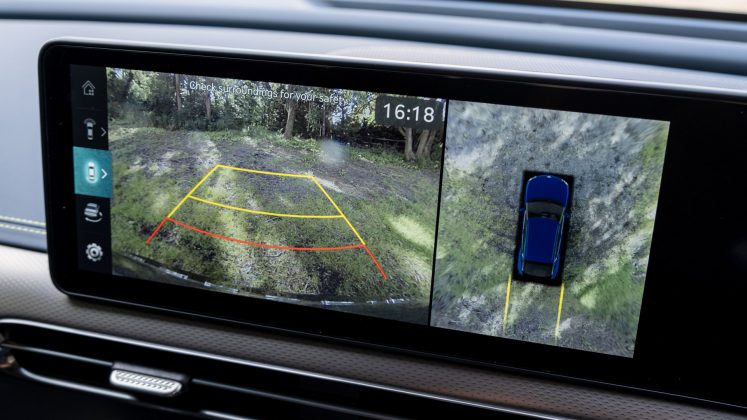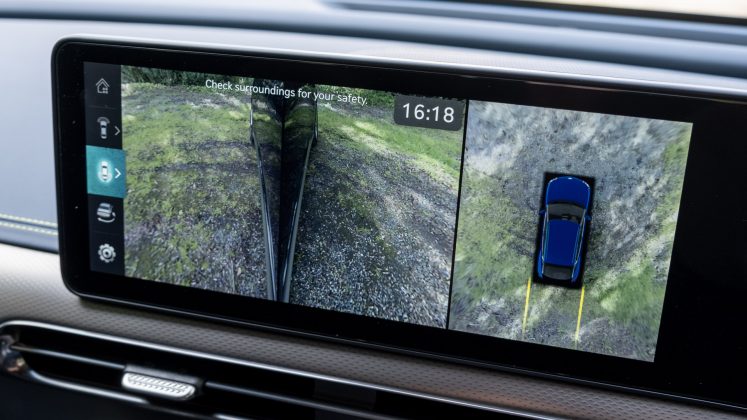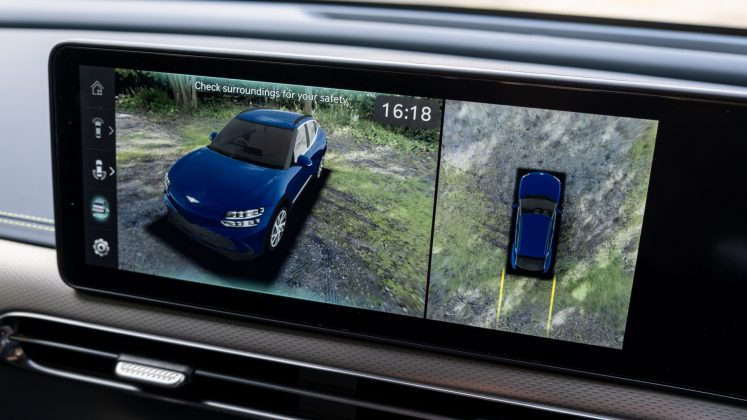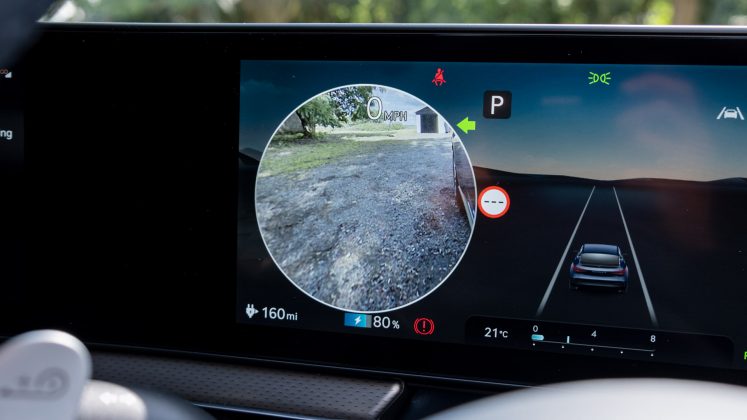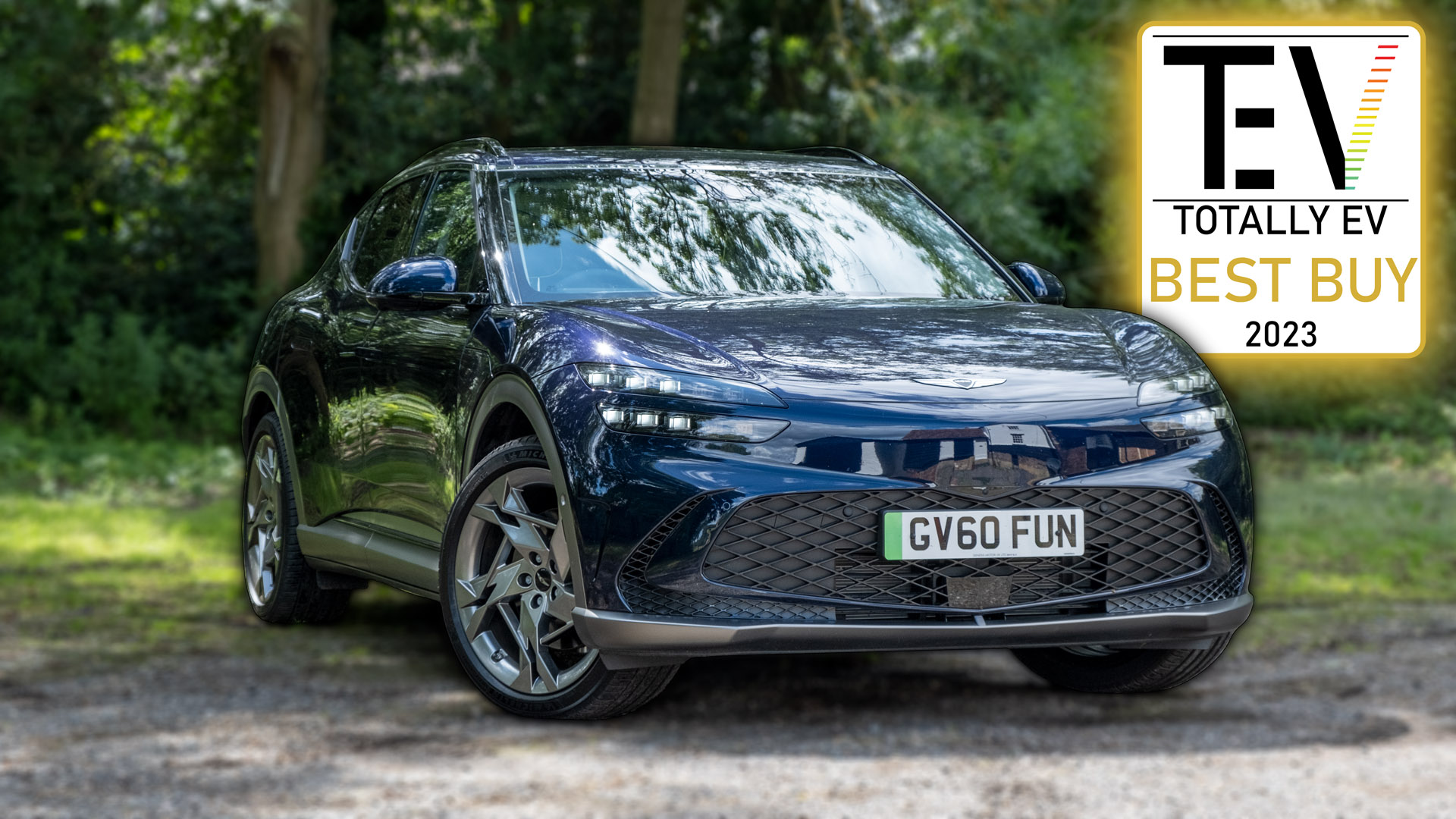Formed in 2015, Genesis is the luxury vehicle division within the Hyundai Group. The Korean automaker recently entered the UK and European markets in order to compete with premium offerings from rival automakers.
Unlike the Electrified GV70 that we previously reviewed, the Genesis GV60 is built from the ground up as a fully electric vehicle. Indeed, it shares many similarities with the Hyundai Ioniq 5, Ioniq 6 and Kia EV6, which are also developed on the Hyundai Electric Global Modular Platform (E-GMP) platform.
If you’d prefer to watch a review of the Genesis GV60, head on over to our YouTube channel.
Genesis GV60 price & competition
Given the GV60 is a more premium alternative to the Hyundai Ioniq 5 and Kia EV6, it’s no surprise that it’s more expensive. At the time of writing and in the UK, it’s available in three trims: the Premium from £53,905, the Sport from £58,365, and the Sport+, which we have on review from £67,505 – it’s important to note that the former operates on a rear-wheel drive (RWD) configuration, while the latter two have an all-wheel drive (AWD) system. A breakdown of the standard equipment and extras can be found below (click to expand):
Find the best Genesis GV60 deals
As for the competition, there are numerous premium all-electric SUVs to consider: the Skoda Enyaq iV 80x from £51,275; the Volkswagen ID.4 GTX from £51,580; the Kia EV6 GT-Line AWD from £51,595; the Hyundai Ioniq 5 AWD Ultimate from £51,900; the Tesla Model Y Long Range from £52,990; the Mercedes EQA 350 4MATIC from £53,010; the Audi Q4 50 e-tron from £55,310; the Volvo XC40 Recharge Twin from £56,150; the BMW iX3 from £62,865; the Jaguar I-Pace from £66,350; the Audi Q8 e-tron from £67,800; the Mercedes EQC 400 4MATIC from £70,035; the Ford Mustang Mach-E GT from £72,830; the Tesla Model X from £95,390; and the BMW iX xDrive50 M Sport from £107,305.
Read next: Kia Niro EV review: An upgraded e-Niro?
Genesis GV60 exterior review
Given its price tag, one might expect luxurious aesthetics, and indeed the GV60 looks the part. At the front, there are soft curves with stylish blocky headlights; similar albeit quite different from its sibling, the Hyundai Ioniq 5. From the side, it has a sporty stance thanks to its stylish alloys – 19”, 20” or 21” rims come fitted depending on the trim chosen. It’s a shame, however, that both the wheel arches and side skirts aren’t body coloured; thankfully they don’t protrude too much, thus not distracting from its stylish profile. As for the rear, it looks refined, especially with its integrated spoiler.
In terms of your colour options, a solid white comes as standard, while the metallic finishes will set you back an additional £740 and the matte £1,110. As for its roof load capacity, it’s rated at 100kg, with its towing capacity at 750kg and 1,600kg for a braked and unbraked trailer, respectively.
Read next: Citroen e-C4 review: Most comfortable SUV?
Genesis GV60 interior review
Inside the cabin, it’s also rather dashing. One has a sense of that premium look and feel. In the tested Sport+ trim, it comes with Nappa leather with quilting, which really takes things up that extra notch. A leatherette material is used in the Premium and Sport trims instead.
What’s more, is that the manufacturer has retained practicality by not eradicating all physical controls. Indeed, it’s far more intuitive to interact with the instrument cluster, infotainment system and to adjust the climate. With that said, the latter is partly digitalised, with fan speed and dispersion of air both touch-based; nonetheless, the small display is very responsive and with physical levers on either side, it’s still quick and easy to adjust the temperature.
As for the infotainment system, the rotary dial that awkwardly resides just above the similarly-shaped gear selector (or Crystal Sphere, when not in drive) on the centre console, provides a means of navigating the 12.3” display; like you would find on certain BMW vehicles that have the iDrive system. It’s much needed, as should you want to reach toward the display, it can be a bit of a stretch.
Read next: Tesla Model Y review: Best electric SUV?
No matter your choice of input, responsiveness and the layout of the infotainment system are both excellent. In fact, the level of customisation and the countless settings on offer might be off-putting at first glance but it’s easy to get accustomed thanks to the intuitive menu system. Android Auto and Apple CarPlay are both supported over a wired connection. It is a shame, however, that the GV60’s instrument cluster does not read navigation data from these third-party mobile operating systems. Of course, directions from the built-in navigation system will work without issue.
Speaking of which, there’s a fully digitalized 12.3” display fitted as standard behind the steering wheel. It’s customisable and can even display the front-facing camera. We’re not too sure why you’d want to, but the option is there. To further heighten the experience, you might want to add a Head-Up Display (HUD), which projects important driving information on the windscreen, allowing you to keep your eyes planted on the road. However, this only comes as part of the Innovation Pack, which costs £2,810. Thankfully, this also adds a flurry of driver assistance systems, which we’ll get into further down in this review.
What is a lot more affordable and is thoroughly recommended, especially if you like listening to music, is the £990 Bang & Olufsen audio system. This upgrades the stock eight-speaker system to a punchy 17-speaker configuration and incorporates Active Noise Control Road (ANC-R), which helps reduce cabin noise. You can hear how the upgraded system performs by watching our dedicated audio review on YouTube.
Aside from your options, the new Genesis GV60 comes fitted as standard with facial recognition and a fingerprint reader. These are great inclusions as they allow you to use the vehicle without having to take your remote, which can be useful for those who tend to misplace their valuables.
In order to facilitate biometric security, there’s a camera found by the B-pillar that works very efficiently in both bright sunlit conditions and in the dead of night; it also doesn’t have any issues with short or tall people either. However, the fingerprint reader located by the centre console is a little hit-and-miss in its ability to operate; thankfully, one can override said function by using a PIN code instead. You can see the systems in action by watching our short video on YouTube, Instagram or TikTok.
Genesis GV60 storage review
What is faultless, however, are the number of storage areas within the cabin. At the front, there’s a pull-out glove box, which has also been optimised for right-hand drive vehicles. Towards the over-arching centre console, you’ll find two cupholders; two angular non-slip bays – one of which doubles up as a wireless smartphone charger; a small area to store your remote and a compartment within the armrest. Better still, the region underneath the centre console is large enough to accommodate a rucksack or a full-size purse.
Elsewhere, you’ll find a small cove below the USB Type-A, two Type-C ports and the 12V socket. As for the door bins, the front two will fit a 500ml bottle and other valuables, while the rear two are a little more limited. Thankfully, the rear doors each have a built-in cupholder, which is quite a novelty. A further two cupholders can be found within the pull-down armrest.
Its boot is pretty sizeable too; with the seats in place there’s 432 litres and with them folded flat there’s 1,550 litres. There’s even a compartment at the front of the vehicle (also known as frunk) – 20 litres in the AWD models and 53 litres in the RWD variants.
Here is how its boot stacks up to its rivals: Tesla Model Y (854/2,100 litres); Audi Q8 e-tron (569/1,637 litres); Skoda Enyaq iV (585/1,710 litres); Genesis Electrified GV70 (503/1,678 litres); VW ID.5 (549/1,561 litres); VW ID.4 (543/1,575 litres); Hyundai Ioniq 5 (520/1,587 litres); BMW iX3 (520/1,560 litres); Jaguar I-Pace (656/1,453 litres); Audi Q4 e-tron (520/1,490 litres); Kia EV6 (490/1,300 litres); Volvo XC40 Recharge Twin (452/1,328 litres); Ford Mustang Mach-E (402/1,420 litres); and Mercedes EQA (340/1,320 litres).
When it comes to convenience, there’s an electric tailgate that comes fitted as standard, 60:40 rear-split folding seats, a 12V socket, a flat loading bay and a large underfloor compartment that can accommodate the vehicle’s charging cables. Unfortunately, the retractable boot load cover cannot be stored in this area, but there are three bays in which it can be stored. This is to help facilitate the reclining function of the rear seats.
Read next: Skoda Enyaq iV review: The Volkswagen ID.4 alternative
Genesis GV60 comfort review
With said function, it bolsters rear occupant comfort, which is much needed as both headroom and legroom are a little limited for 6-foot 2-inches (188cm) individuals. It is, however, great to see that the rear footwell is flat; allowing the middle occupant to be sat without discomfort on longer journeys.
At the front, the seats are electronically adjustable, have lumbar support, are heated and ventilated as standard. The driver’s seat also has a memory function with ergo-motion and massage, which promotes better back health and posture. Better still, when the vehicle is Sport mode, the seats have a side bolster feature, which provides excellent support to your back when cornering. To further bolster comfort, Genesis has included a ‘relaxation seat’ for both the driver and passenger; this allows you to fully recline the seats when the vehicle is stationary.
Speaking of which, to find the best driving position, the steering wheel is electronically adjustable, which in our opinion is an excellent addition. At the rear, there are also side curtains fitted as standard, allowing passengers to block out the sun when required. Going one step further, you’ll be able to fit a fixed non-opening sunroof for an additional £1,120.
Find the best Genesis GV60 deals
As for cabin noise, it’s kept down to a minimum with exterior noise suppressed even at higher speeds. This is thanks to laminated front side and rear windows and an acoustically treated windscreen as standard. With the £990 17-speaker B&O audio upgrade, you’ll also get Active Noise Control Road (ANC-R), which further suppresses exterior noise. In this department, it outclasses most of its competitors and provides for a serene in-cabin experience – more details and our in-cabin measurements can be found in our dedicated audio review.
However, what we aren’t fond of is ‘Active Sound Design’, which projects artificial engine or EV sounds through the speaker system. This can, however, be fully disabled through the infotainment system, which allows you to appreciate the GV60’s quiet cabin.
Read next: Kia EV6 review: The Hyundai Ioniq 5 alternative
Genesis GV60 performance review
Another quirk is ‘Virtual Gear Shift’ (VGS), which simulates gear changes. This innovative feature can be toggled on or off with the press of a button – as you can assign one of them on the steering wheel. This unique use of technology gives you the ability to shift through the gears as you would do in a vehicle that has a traditional gearbox. Performed by flicking on the flappy paddles, one has the sensation of decelerating while going down the gears, and being able to achieve top speed in the higher gears; there’s even a small delay as you change gear and regenerative braking that helps maintain that traditional feel.
Aside from these features, how does the Genesis GV60 perform on the road? Well, its suspension system is tuned to perfection, at least in our opinion. This, in part, is due to the Sport+ model on review having ‘Electronic Control Suspension With Road Preview’, which effectively provides for a bettered experience when traversing on uneven terrain. This is also available as a £650 option in the Sport trim but is unattainable in the Premium model.
Equally, the more expensive models operate on an all-wheel drive (AWD) system that helps with traction on the road. The AWD variants of the GV60 feel planted and incite great confidence when cornering at speed; the Sport+ model also has an electronically limited slip differential, which further bolsters the experience. Unsurprisingly, the Premium model that opts for a rear-wheel drive (RWD) configuration isn’t as adept as its AWD siblings, but still provides a great feel thanks to the motor being planted on the rear axle.
However, no matter which GV60 you choose, you will find that the steering input feels a little disjointed – at least when it’s compared to the likes of the BMW iX1, BMW iX3, Jaguar I-Pace and Audi Q8 e-tron, which all do an excellent job in this department. Similarly, the brakes of the Genesis are a little underpowered; the ventilated 360mm front and rear discs don’t seem to be appropriately matched with the vehicle’s performance, which is a little disconcerting if you have to bring the 2,500-2,700kg vehicle to a complete standstill in an emergency situation.
This brings us to performance. At the time of writing, all GV60s have the same 77.4 kWh battery pack. The difference comes in the motor configuration and their rated output. In the Premium model, you’ve got a singular motor at the rear that outputs 168 kW (225 hp) of power and 350 Nm of torque. The Sport has two electric motors, one at the front and one at the rear, which combine to output 234 kW (314 hp) of power and 605 Nm of torque. While the Sport+ on review, has a staggering 360 kW (483 hp) of power and 700 Nm of torque. These have a claimed 0-62mph time of 7.8, 5.5 and 4 seconds and a top speed of 115, 124 and 146mph, respectively.
Using Racelogic’s Performance Box Touch, we had the Sport+ tested from 0-20mph in 1.17 seconds, 0-30mph in 1.75 seconds; 0-60mph in 4.05 seconds and from 50-70mph in 1.8 seconds. Indeed, the GV60 is blisteringly quick.
These times were attained with Boost mode enabled, which is available in the Sport+ model only. This 10-second burst of power is initiated by pressing the appropriately labelled button found at the bottom of the steering wheel – it effectively gives you the full whack of power, be it from a standstill or while on the move. Without it, the SUV is 0.2-0.4 seconds lower in achieving the target speed, so it’s still very punchy.
Read next: Volkswagen ID.5 review: Germany’s best electric SUV?
What isn’t as impressive, however, is its electric driving range. In our mixed driving tests, we netted 210-230 miles from its 77.4 kWh battery pack. Note, that a heat pump comes fitted as standard. Granted it’s not too shabby, but given Hyundai Group’s excellent pedigree in this department, we expected a better result. With that said, it is worth considering that the Sport+ was on test and thus, should you want better range you’ll want to opt for the Premium trim that’ll net you roughly 240-260 miles.
To help put things into perspective, here’s how it stacks up to its rivals: the VW ID.5 clocked in an impressive 325 miles; the Skoda Enyaq iV 80 300 miles; the Tesla Model Y Long Range 260-280 miles; the Audi Q8 e-tron 55 250-270 miles; the Audi Q4 e-tron and Volkswagen ID.4 attain roughly 260 miles; the Kia EV6 RWD 240-260 miles; the Jaguar I-Pace and Volvo XC40 Recharge Twin both sit around 240-250 miles; the Hyundai Ioniq 5 AWD Ultimate 230-250 miles; the BMW iX1 xDrive30 225-245 miles; the BMW iX3 nets 235 miles; the Mercedes EQA 210-220 miles; Genesis Electrified GV70 200-220 miles; the BMW iX xDrive40 M Sport 200-210 miles; Audi e-tron S 190-210 miles; and the Ford Mustang Mach-E 180-200 miles.
Much like every other fully electric vehicle on the market, the Electrified GV60 has the ability to recoup energy back into its battery pack via the use of regenerative braking. However, unlike its competitors, there are different regenerative braking levels to choose from and i-Pedal mode. The latter allows you to bring the vehicle to a complete standstill when lifting off the accelerator pedal. Thus, inner-city drives become less cumbersome as one doesn’t have to resort to using the physical brake pedal when decelerating.
While useful, it is a shame that i-Pedal mode isn’t stored within the vehicle’s memory, which means you’ll have to initiate it each time you step inside the cabin. Thankfully, this can easily be rectified in a few seconds by flicking on the left flappy paddle. Here, you’ll also find a few other regenerative braking levels: 1, 2, and 3; you can also access Auto mode by holding the right flappy paddle for a few seconds. In said mode, the vehicle will decelerate when lifting off the accelerator pedal based on your preferred setting that was chosen on the infotainment system. Here, you can pick from: Strong, Medium and Soft, which in essence correspond with the same amount of deceleration as Level 3, 2 and 1 manual modes, respectively.
Buy a car phone mount on Amazon (Affiliate)
To recharge at a much more rapid rate, there’s a CCS and Type 2 port. Using the former type of connection, the GV60 can accept a staggering 350 kW of power. Meaning a 10-80% charge will take just 18 minutes. These high-speed chargers aren’t that common, so on a 50 kW input, it’ll take 73 minutes, instead. Connected to an AC charger, the GV60’s Type 2 port supports an 11 kW three-phase input, which means a 0-100% charge will take 7hrs20mins, while a regular 3-pin (2.3 kW) connection will take 34hrs 20mins instead.
Elsewhere, there is support for Vehicle-to-Load (V2L) charging, which costs an additional £880. Here, via an adapter plugged into the Type 2 port or the three-pin socket in the boot, you can discharge the vehicle at a rate of 3.6 kW, which is enough to power household appliances – useful if you go camping, as you can plug in a light or pop on the kettle.
Read next: Audi Q8 e-tron review: An upgraded electric SUV
Genesis GV60 safety review
In terms of safety, the GV60 scored 5/5 stars on Euro NCAP’s rigorous crash tests. Managing 89% in Adult Occupancy, 87% in Child Occupancy, and 88% in the Safety Assist tests. It does extremely well across the board, making the vehicle one of the safest in its class.
This is also aided by the plethora of driver assistance systems that come fitted as standard: Smart cruise control (SCC) with stop & start, Blind-spot collision-avoidance assist (Rear BCA), Lane keeping assist (LKA) & Lane following assist (LFA), Forward collision-avoidance assist (car/pedestrian/bicycle) (FCA) & junction turning (FCA-J), Intelligent speed limit assist (ISLA), Manual speed limit assist (MSLA), and Highway driving assist (HDA).
In our tests, we found the systems worked a treat, namely the smart cruise control that took the stress away from mundane motorway drives and correctly regulated the distance to the leading vehicle. Furthermore, LKA can be temporarily disabled by long-pressing the steering wheel icon located on the left-hand side of the steering wheel. Useful, as LKA gets enabled each time you power on the vehicle, no matter the last-used setting.
Should you want to better the experience, you can opt for the Innovation Pack for £2,810. This will give you Remote smart parking assist (RSPA), Head-up display, Surround view monitor (SVM), Blind-spot view monitor (BVM), Highway driving assist (HDA II), Forward collision assist – junction turning & crossing (FCA-JX), and Reverse parking collision-avoidance assist (Reverse PCA).
BVM is an excellent inclusion and uses side-mounted cameras to act as a blind-spot monitoring system. You’ll be able to see your surroundings as you indicate via the instrument cluster – an excellent inclusion, which we’ve seen previously on Hyundai and Kia vehicles.
This brings us to visibility and parking. The GV60 is easy to manoeuvre thanks to its 11.94-metre turning circle. There are no issues when looking towards the front or side of the vehicle, however, rearview visibility is a little limited due to the spoiler design. Thankfully, there are front and rear parking sensors, and a high-resolution rearview camera that all come fitted as standard, which make it easy to check your surroundings.
Read next: Jaguar I-Pace review: Better than newer rivals?
TotallyEV’s verdict on the Genesis GV60
On the whole, the Genesis GV60 is an accomplished all-electric SUV. Granted, it might not have a class-leading electric range, but it otherwise ticks every single box: it’s lavish both inside and out, is smartly designed with physical controls aiding functionality, has plenty of driver assistance systems that come fitted as standard, is practical with its boot capacity, is loaded with technology, is comfortable to drive with its serene cabin and of course, has an extremely punchy dual-motor configuration, which leads to a fun driving experience. As a result, it receives TotallyEV’s Best Buy award.
Find the best Genesis GV60 deals
Would the GV60’s electric range suffice for your needs? Let us know in the comments section below or via social media; we’re on: YouTube, Instagram, Facebook, X and LinkedIn.


